An Artisan's Touch: The Apex Interviews Walter Heale
On this week's edition of the Apex, we are joined by Walter Heale, visionary founder of Historic Motor Car Workshops. His team of craftsmen specialise in the restoration and race preparation of pre and post war cars, with a leaning towards French and Italian marques of that period. In our interview, Walter shares the stories behind some of the extraordinary cars he has worked on, including a rare Lancia Dilambda that raced in Italian Eritrea. He also reflects on the current landscape of the pre war community, and how sustainable fuels can have a positive impact on pre war racing.
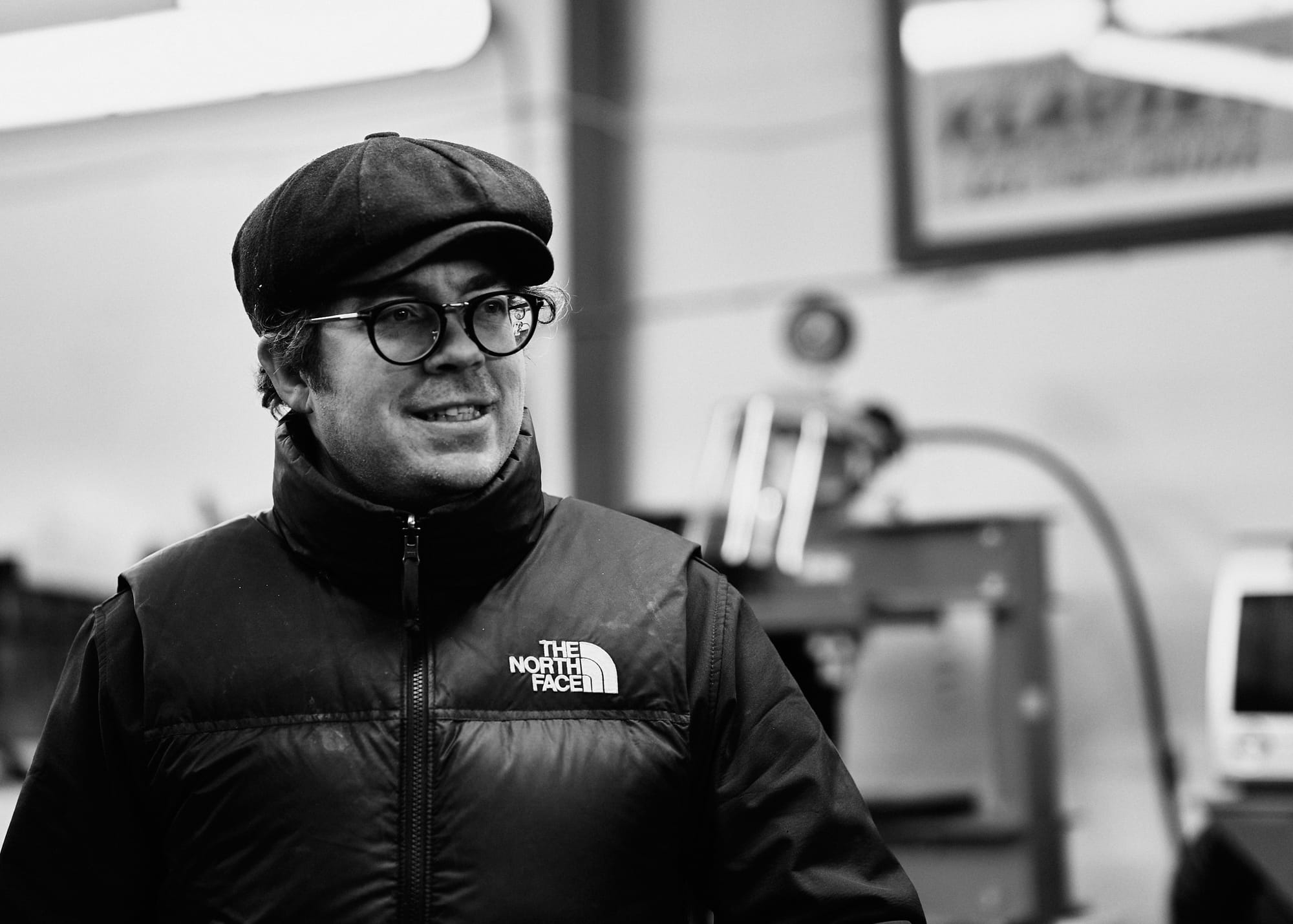
Custodian, the business that powers the Apex, has just launched car insurance designed for enthusiasts. So if you're an existing Custodian user, you can apply directly through the platform 24/7, and if you're not yet a Custodian user, sign up here and check it out.
Archie Hill interviews Walter Heale for The Apex by Custodian. Recorded and produced by Archie Hill. Transcribed by David Marcus. Edited by Archie Hill.
Walter, welcome to the show!
Hi Archie, good to be here, thanks a lot.
My pleasure, and thank you again for letting me come and take a look at your workshop. It really felt like a bit of a time capsule. I walk in the door and I am greeted by two Bugatti Type 37s!
35s even [laughs].
35s! I’m showing my pre war ignorance already.
That is all right, we will get you back and teach you some more.
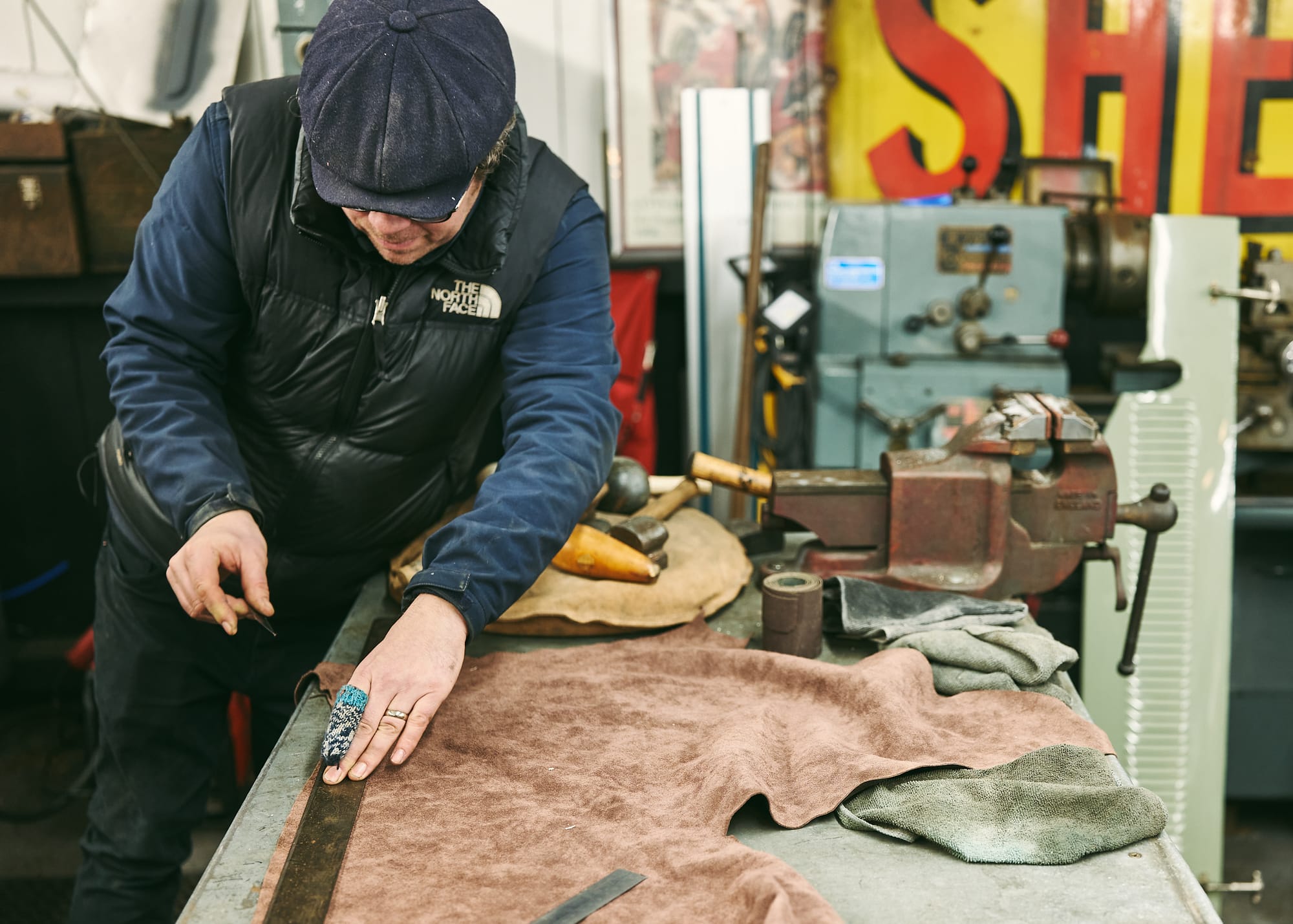
I am going to need it! To set the scene then, how did you come to be involved in the restoration of pre war cars?
A circuitous route, unlike lots of people. But typically, like many people, you are introduced to older cars as a child, and certainly in the vintage world, that seems to be more often the case. My grandfather had a collection of classic German cars mostly, and growing up, I was always fascinated by his collection of cars, and we would go to car shows and all sorts of stuff together. He had an amazing collection of motoring books and literature, which I would avidly read when we went to stay. My parents actually didn't have a car, so I was even more fascinated because we had to get public transport or bicycle everywhere, so the idea of a motor car was very exciting to me. So through his enthusiasm really, that got me going, and following on from that, for many years I was involved in playing music, but my father was a violin maker. So for several years after school I studied violin making with him, and I think that idea of craftsmanship and looking through history and understanding not only the object, but how it was made, the craftsmen that made it, and very much looking at things from a handmade point of view has really helped me when I started working on my own cars and building up Austin Sevens and Amilcar's, and finally getting up to the heady heights of Bugatti's and things like that. Again, they were all made by craftsmen and it's very much that art meets mechanical engineering that really got me excited, particularly about vintage cars.
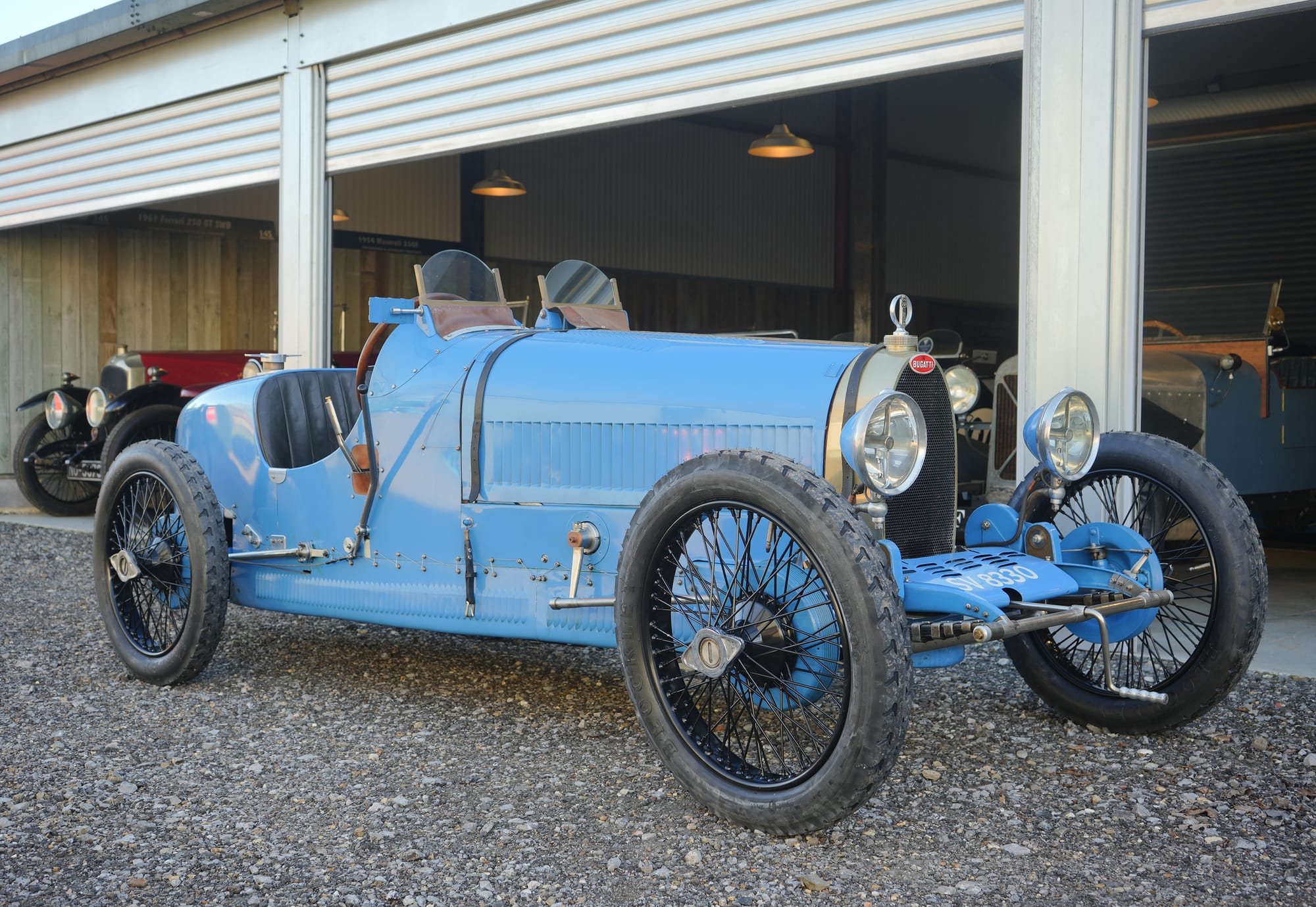
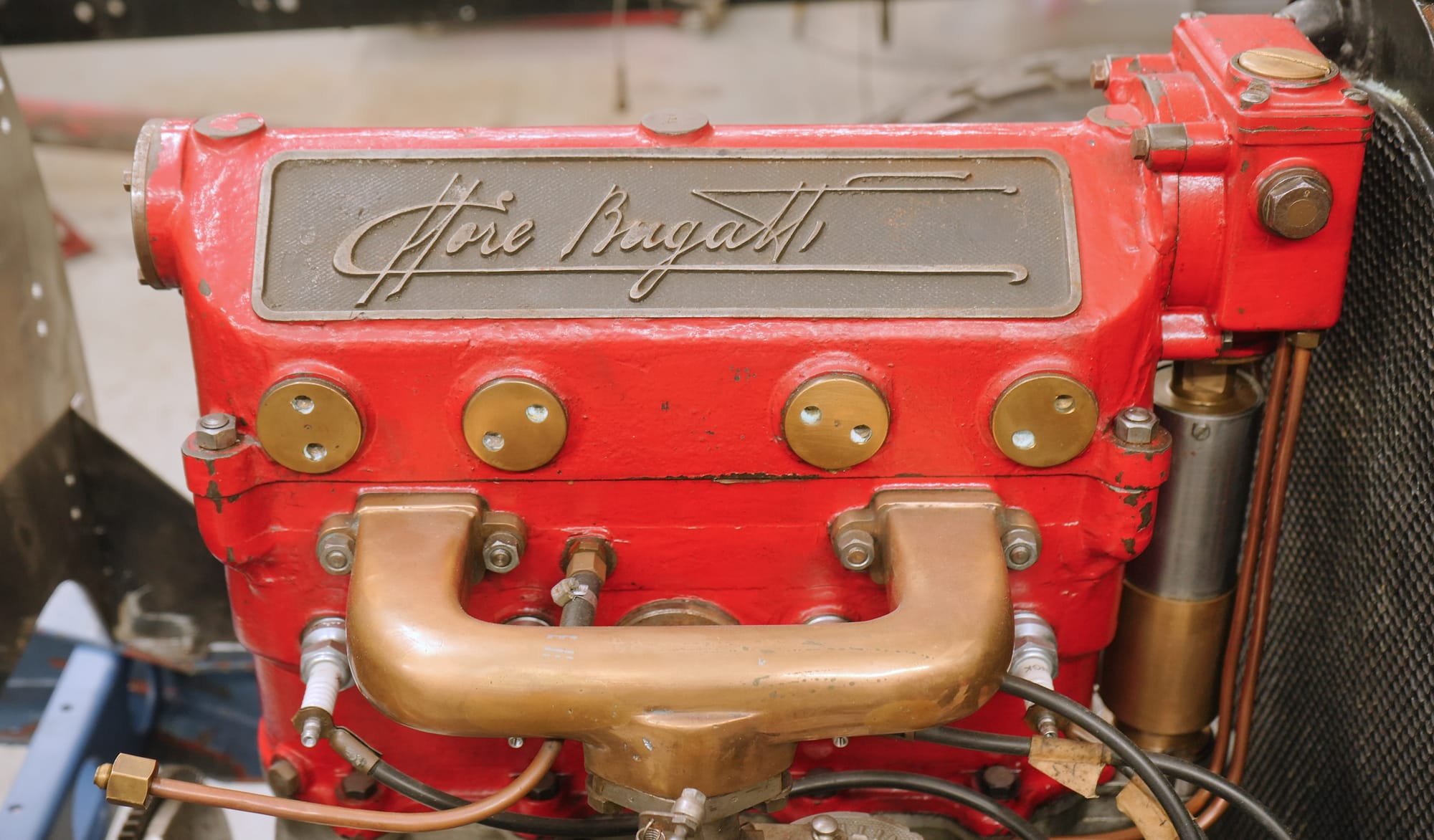
One of the things that struck me was the lack of modern machinery in your workshop. Why is it so important to you to retain those traditional methods when you are working on these cars?
I think these cars were built by, as we were saying, craftsmen and craftspeople, and it's very important I think to use those old machines, early cast iron English wheels and things, they are a much better quality machine. And of course they enable you to do your job by hand, rather than just sending things out for CNCing or things like that. I like the idea that particularly Bugatti, for example, made a lot of his things actually quite simply in terms of machining, which of course enabled him to have a fairly unskilled work labour force in some areas in order to get through the work in a production style. So again, that idea of simple machinery being used by craftspeople is really important to me. I think it maintains the ethos of what the original maker was doing.
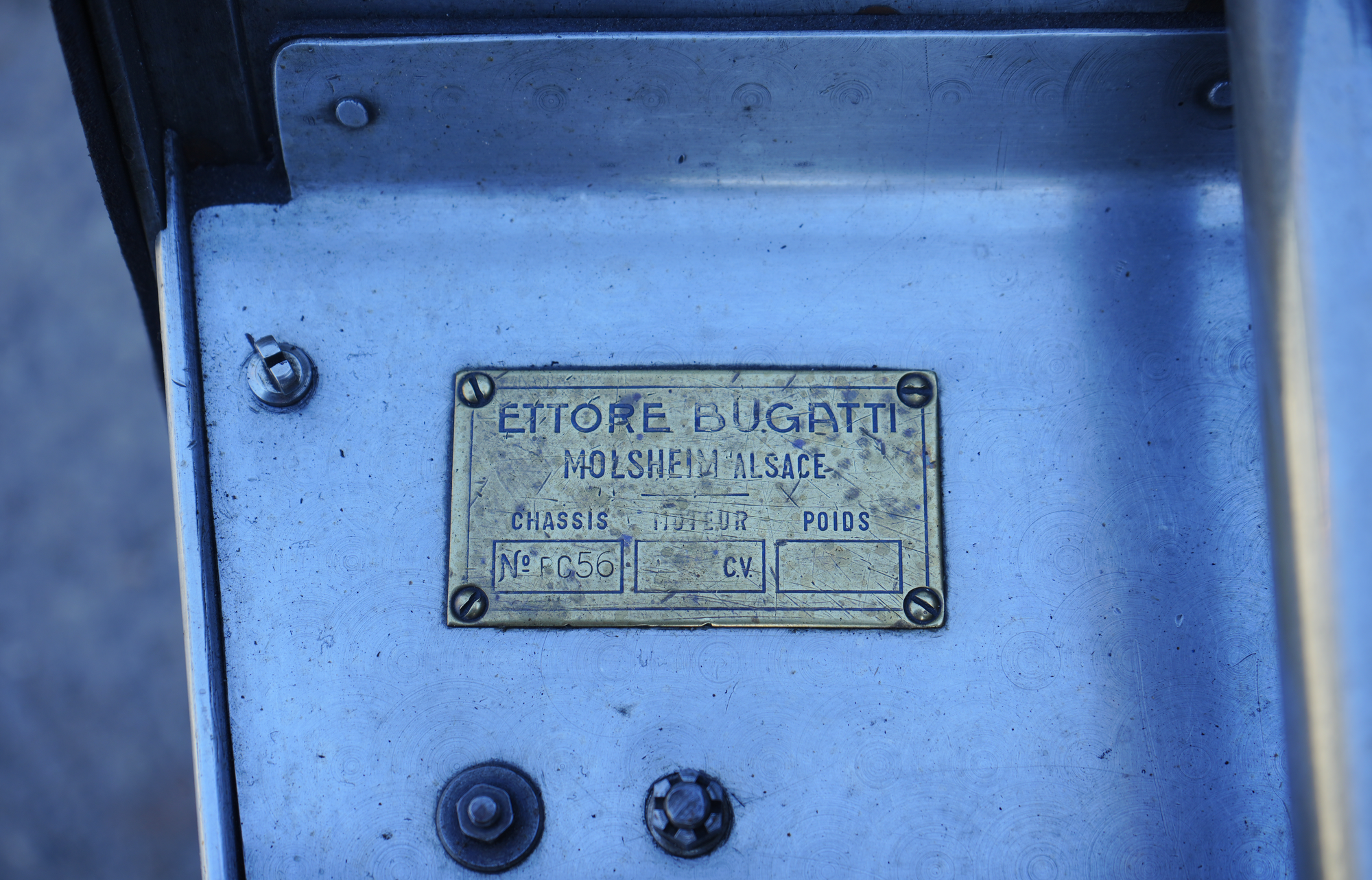
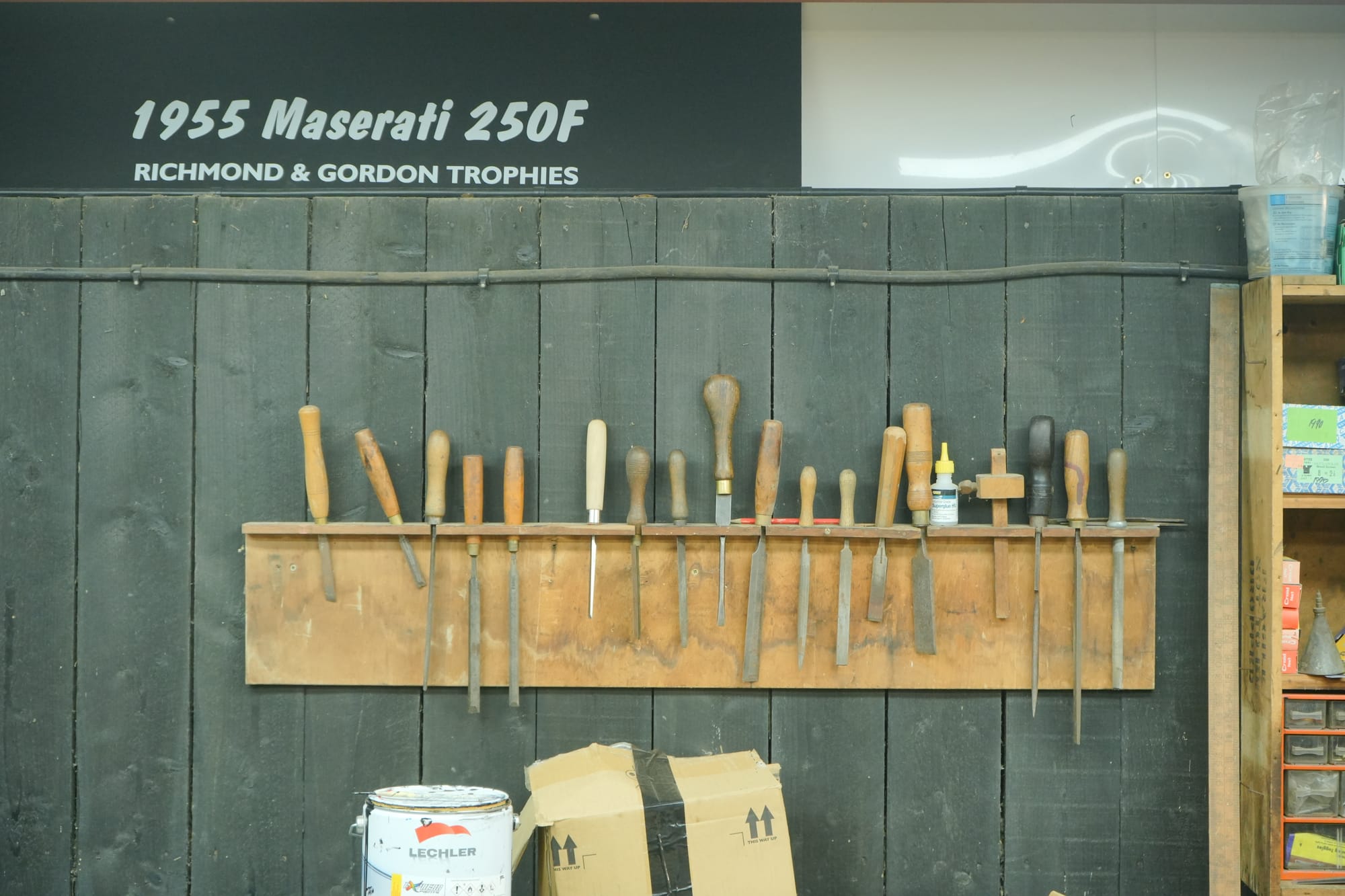
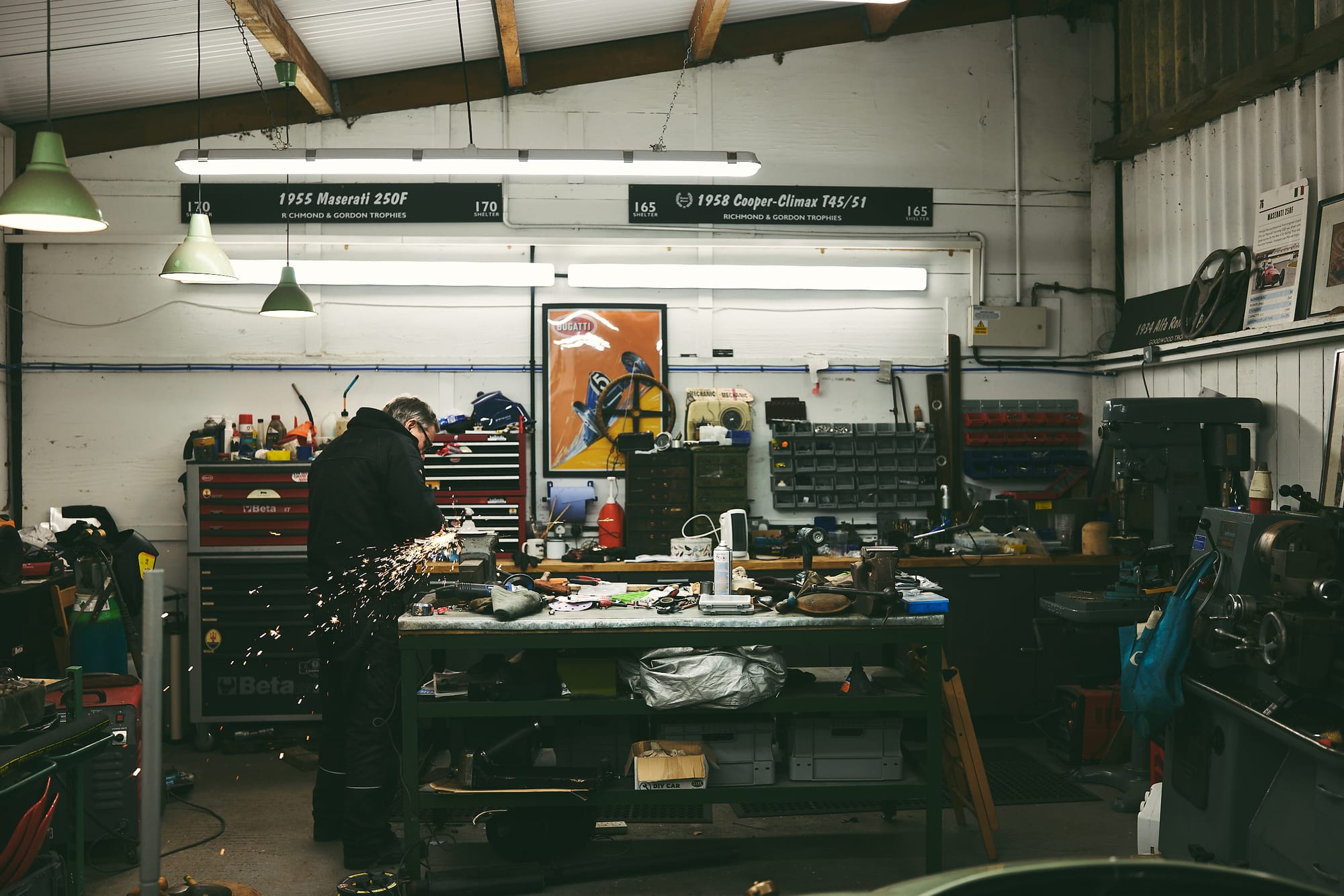
Credit: Archie Hill // James Brown Photography
Some of the cars you had in your workshop had been restored previously, but you are going back and undoing the restorations because they've used the wrong paint, for example, or they have used body filler to cover up the dents in the car.
That's right, for many years I think the whole idea of restoration was very much making things better than new, and I am glad to say that that has changed in recent years, that people understand that patina and original finishes are really important to both the look of the car and actually in some cases the value, much like you would see a wonderful painting hung on a wall. You wouldn't expect someone just to repaint all over it, and say well it's much better now, it's nice and bright.
And one of the cars in particular in your workshop that caught my eye, I think was a Lancia Dilambda. What is the story behind that car?
It is a fascinating car. It is a 1933 Lancia Dilambda, which was a V8 engined Lancia. It was a terribly narrow angle, 24 degree V, so you wouldn't necessarily think it was a V8 looking at the engine, but they were primarily made originally for the American market. That was the idea of a large limousine. But this one, most unusually, has been turned into a racing car, and it was done so in period in Eritrea, which of course was then an Italian colony, so the Italians had a great time there. I am not sure the natives enjoyed it particularly, so it was a slightly mixed point in history I suppose, but if we ignore the political angle, they had some amazing races around the centre of Asmara, and this was one of such cars. They had 6C's racing there, they had Alfa 8C's, P3's, Maserati 4CMs, so it was quite a grid, and this particular car we think was built in the workshops of Bigi Cristoforo, who was a restorer there.
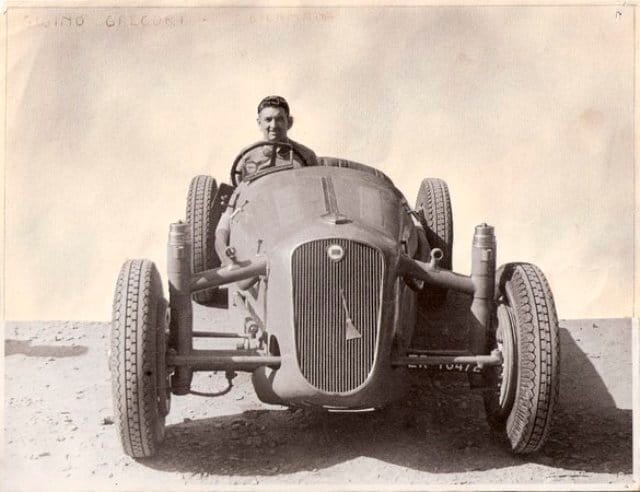
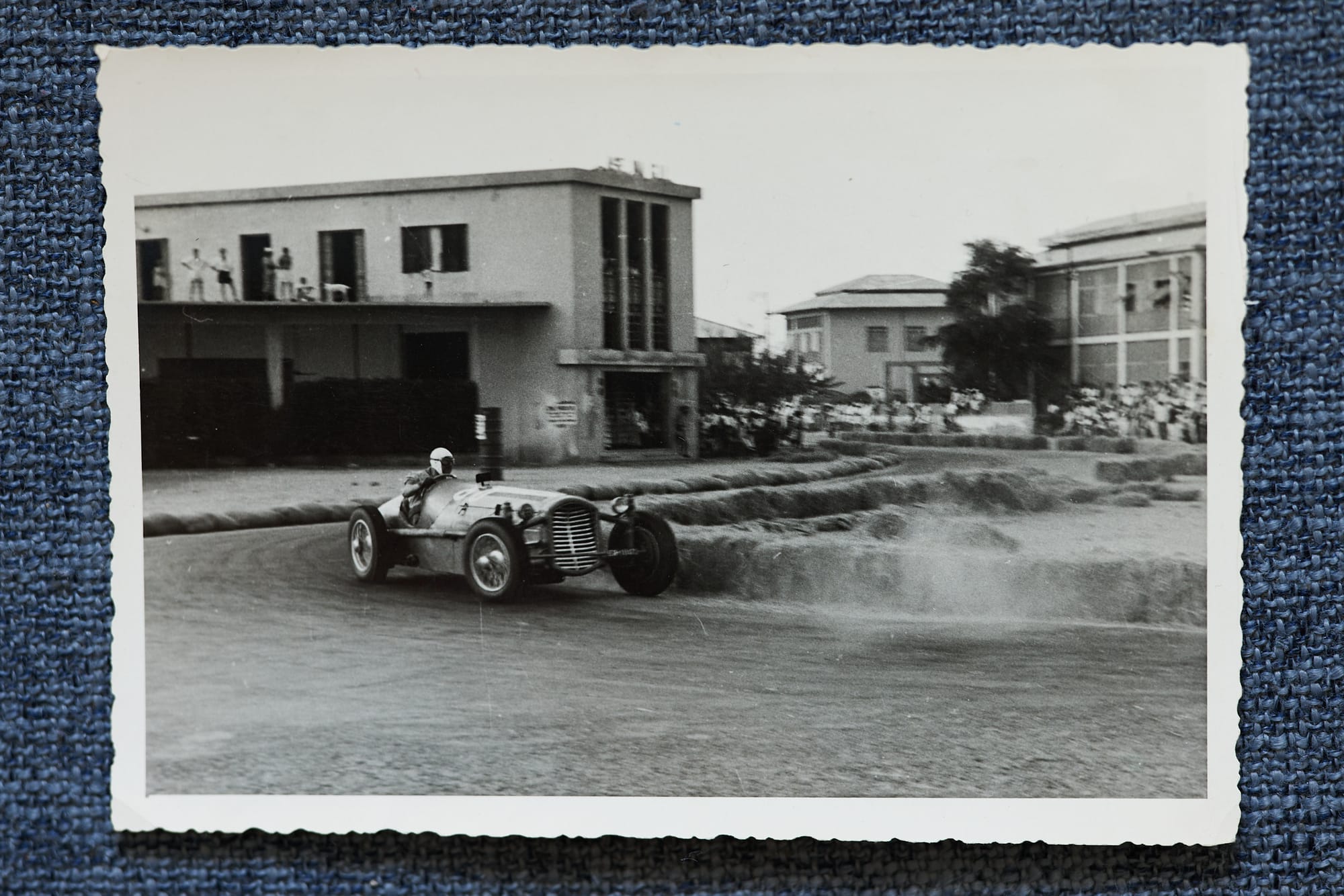
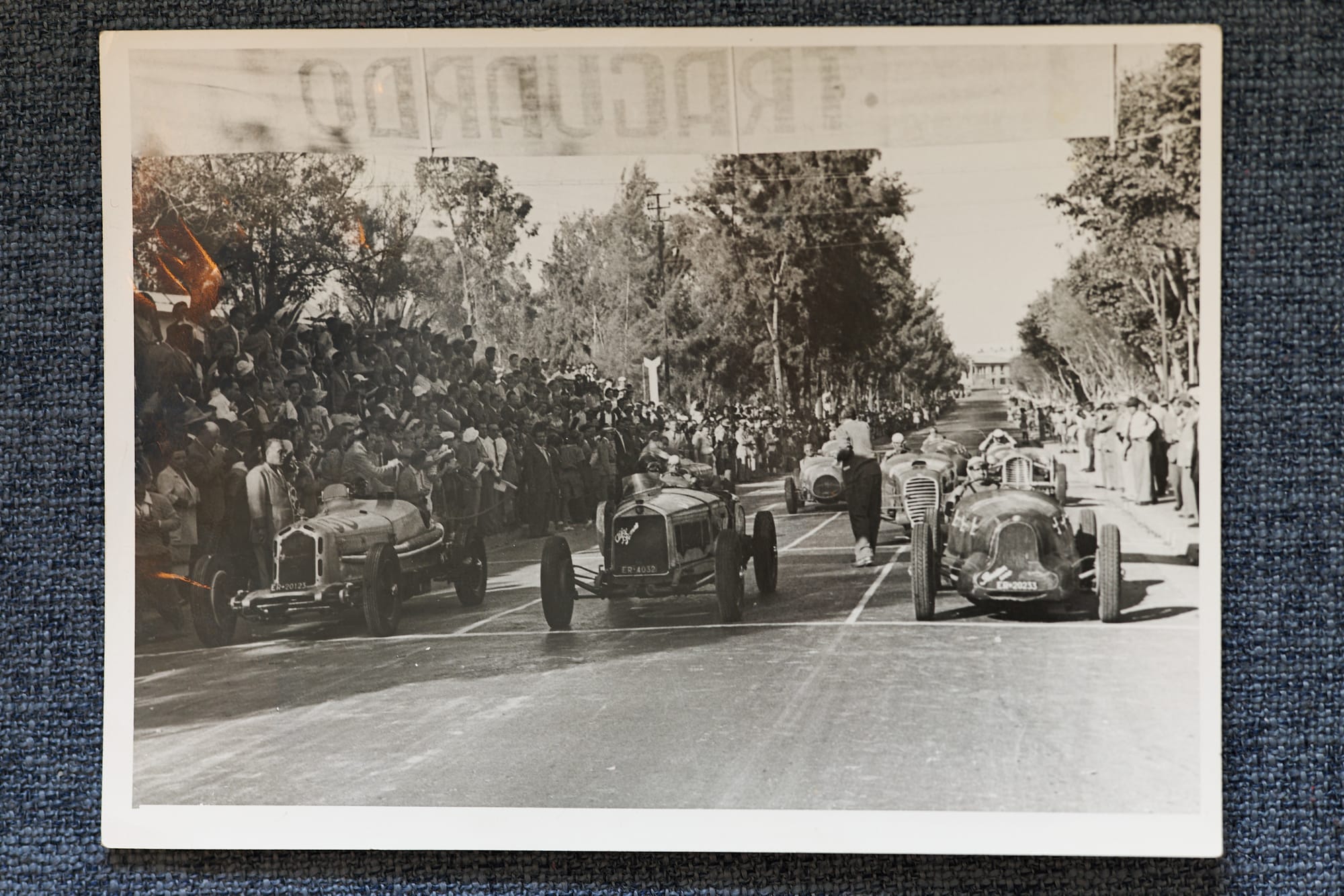
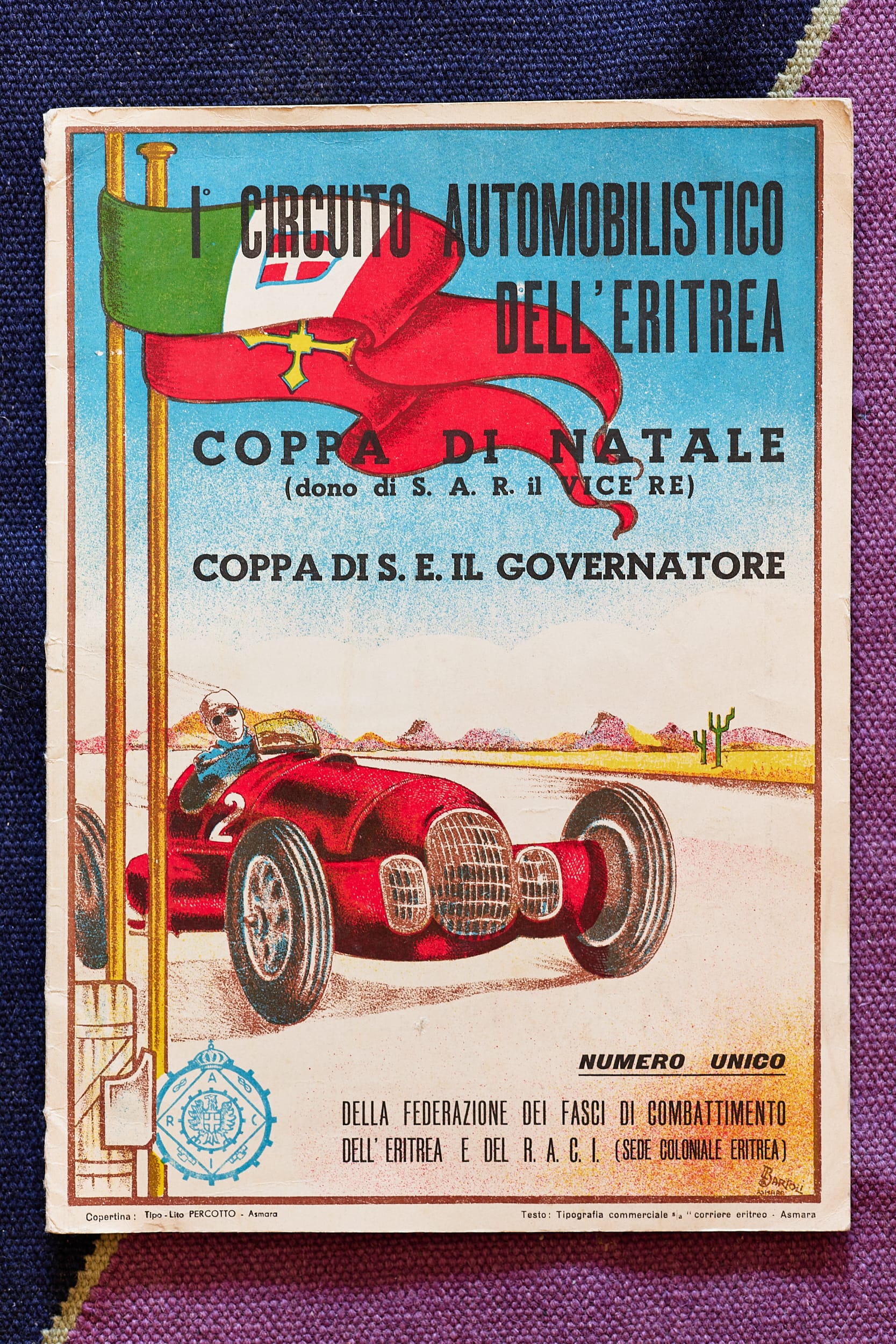
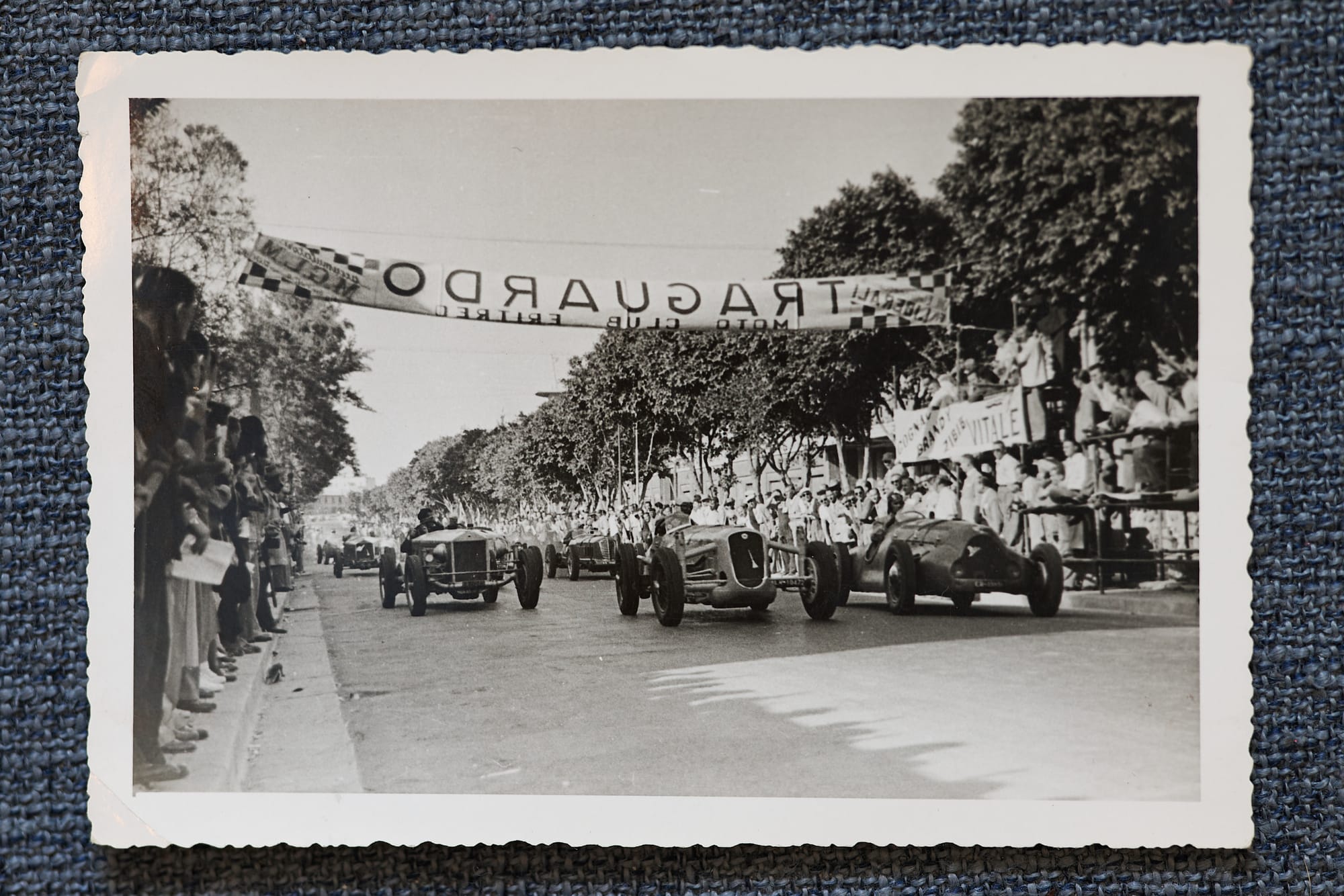
Credit: James Brown Photography
But many of the Italian racing drivers went out and immigrated there, so it was very much rather a playground for them, and this fascinating car was found by a US serviceman stationed there in later years and brought to America, then latterly came over to the UK. Nicholas Benwell of Phoenix Green Garage, a friend of mine, found it in the States. He is very good at turning up fascinating wonderful old cars, and it ended up in our workshops and we were lucky enough to find a new owner for it, who then asked us to restore it.
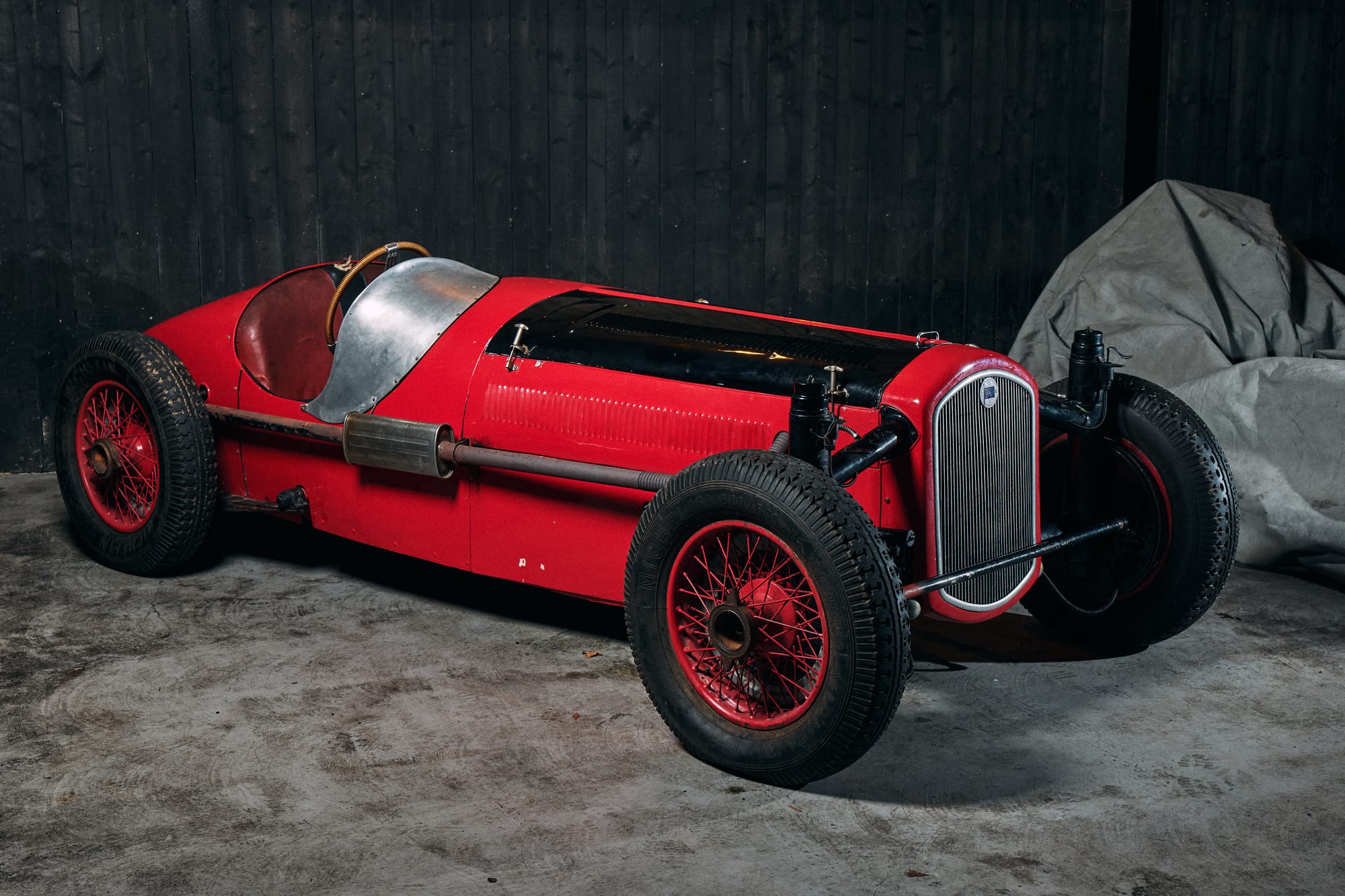
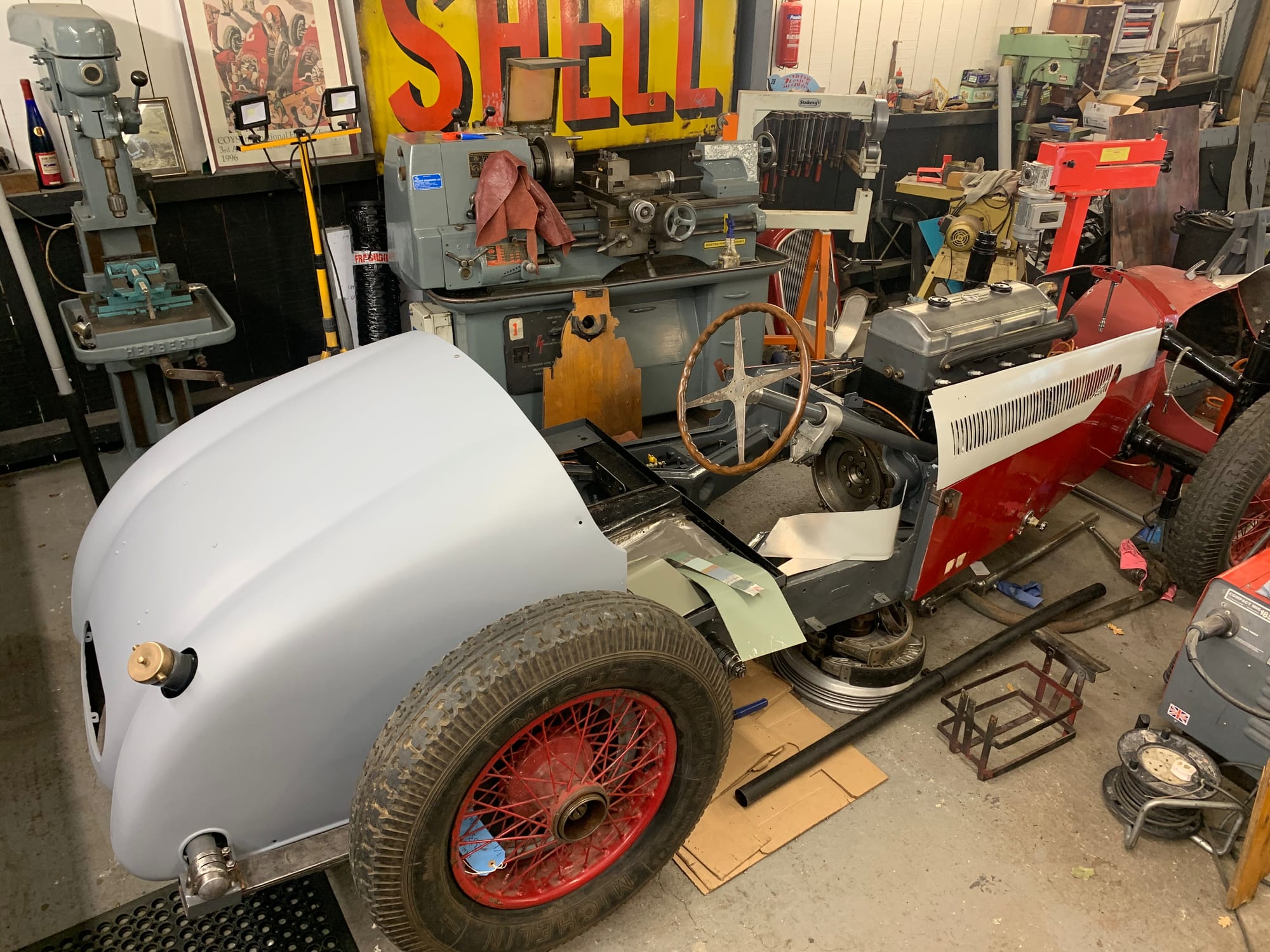
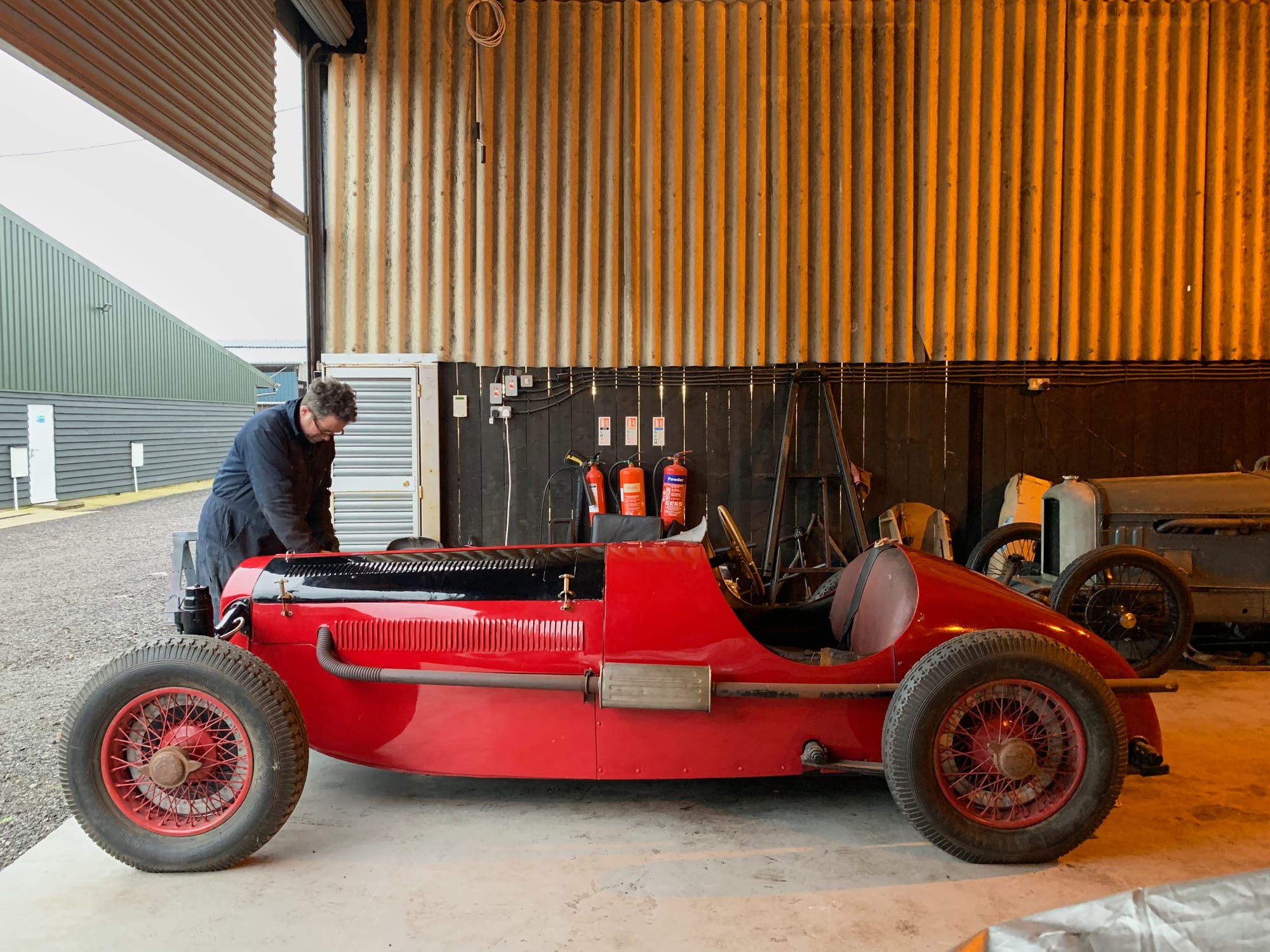
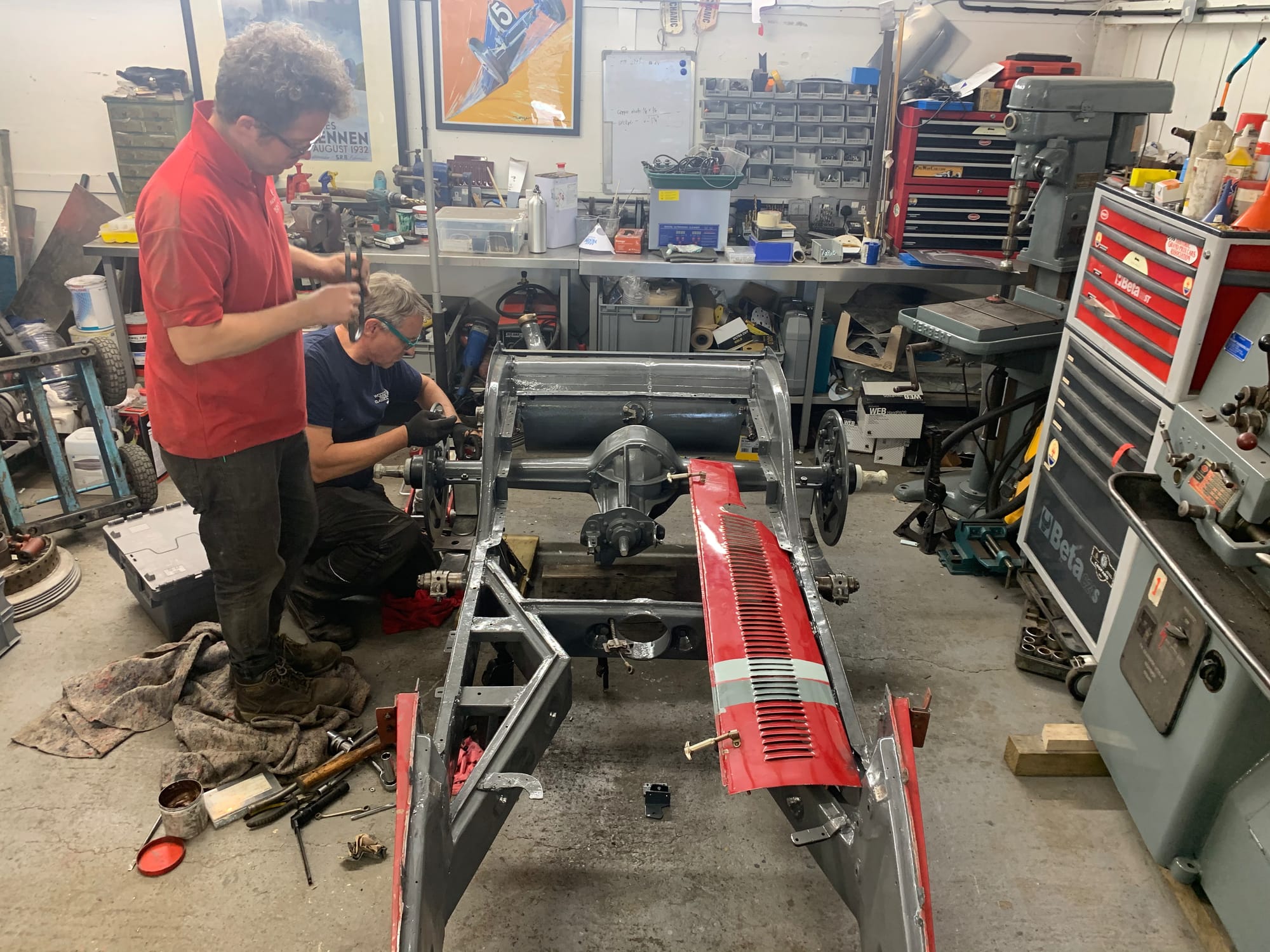
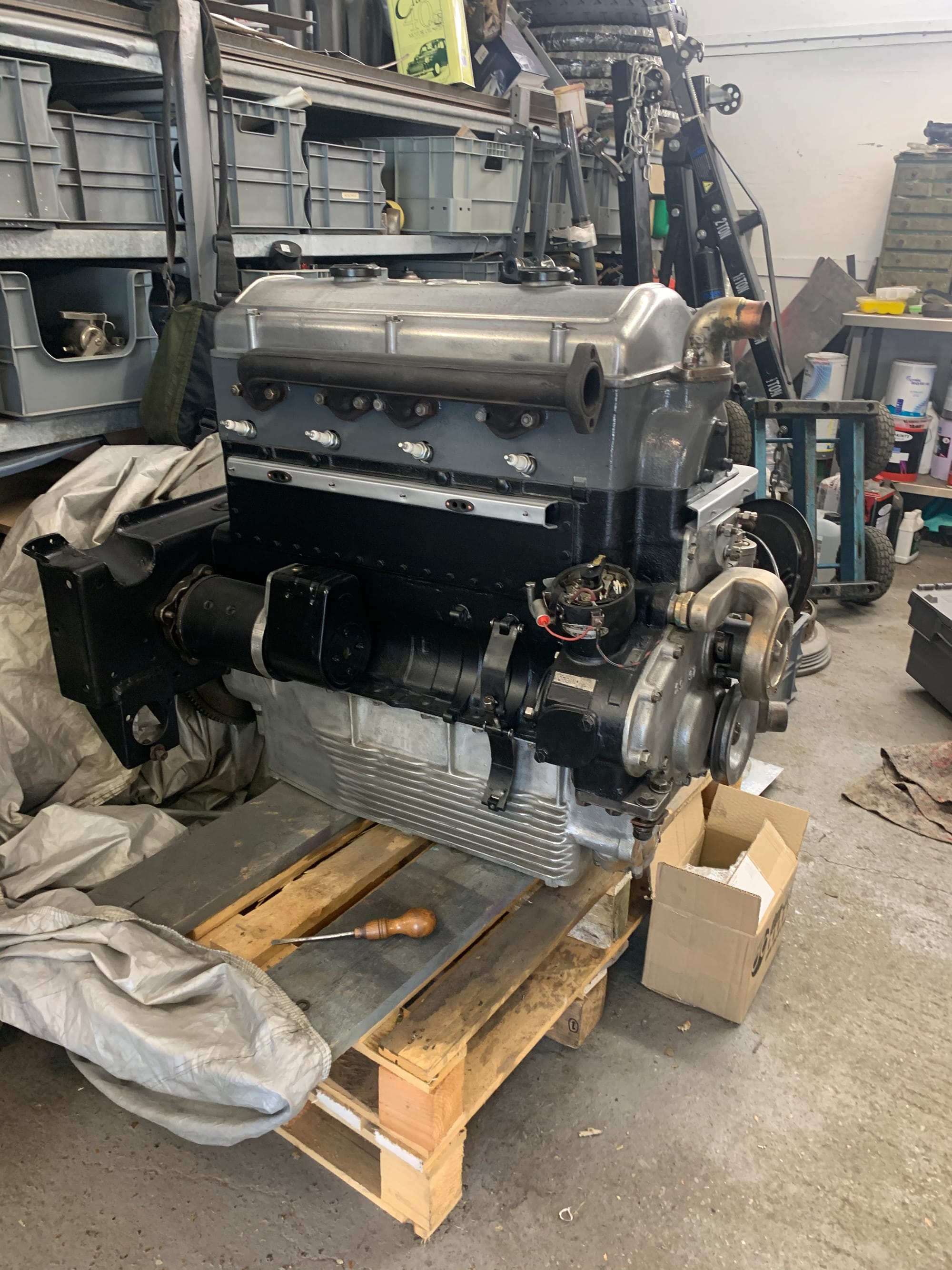
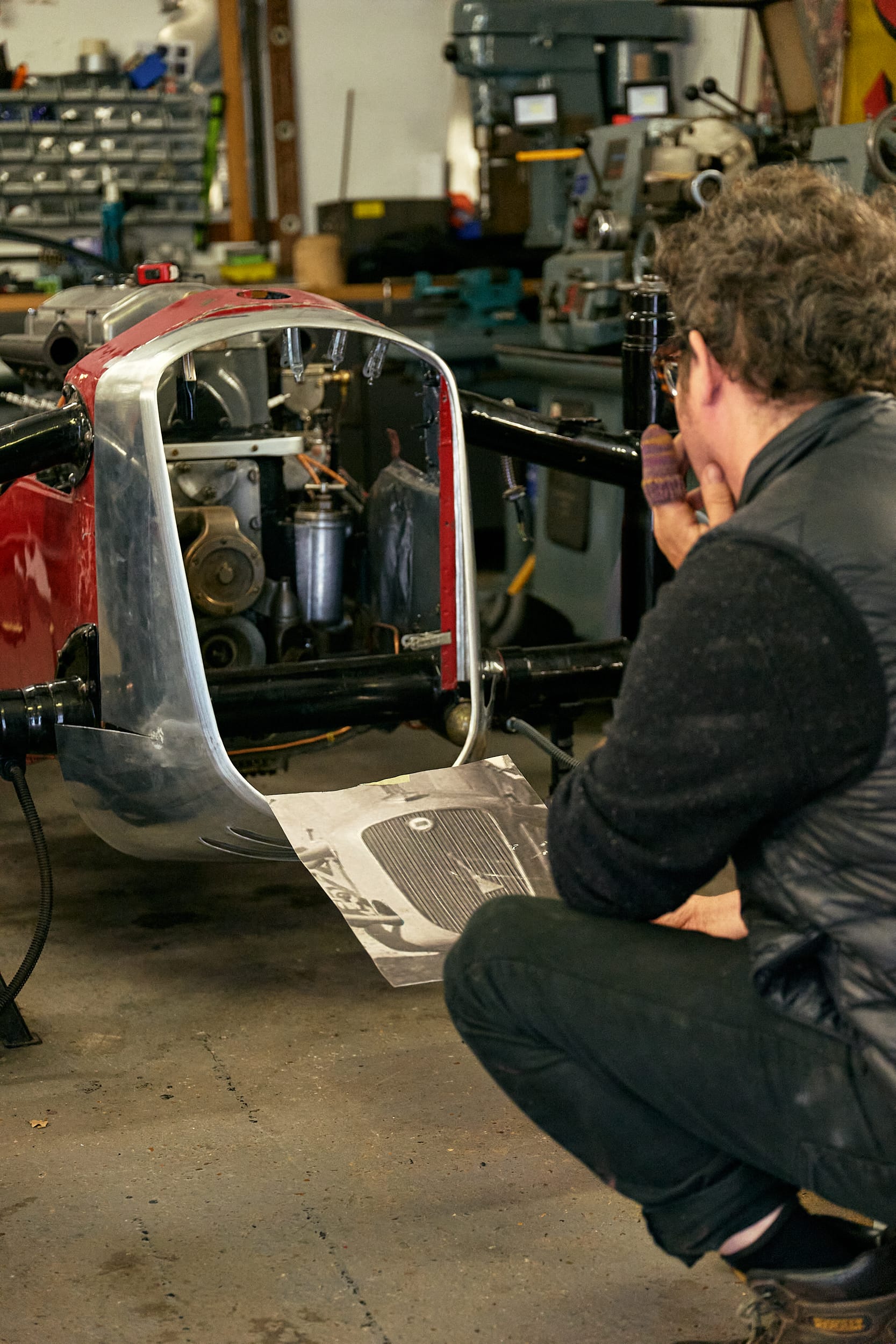
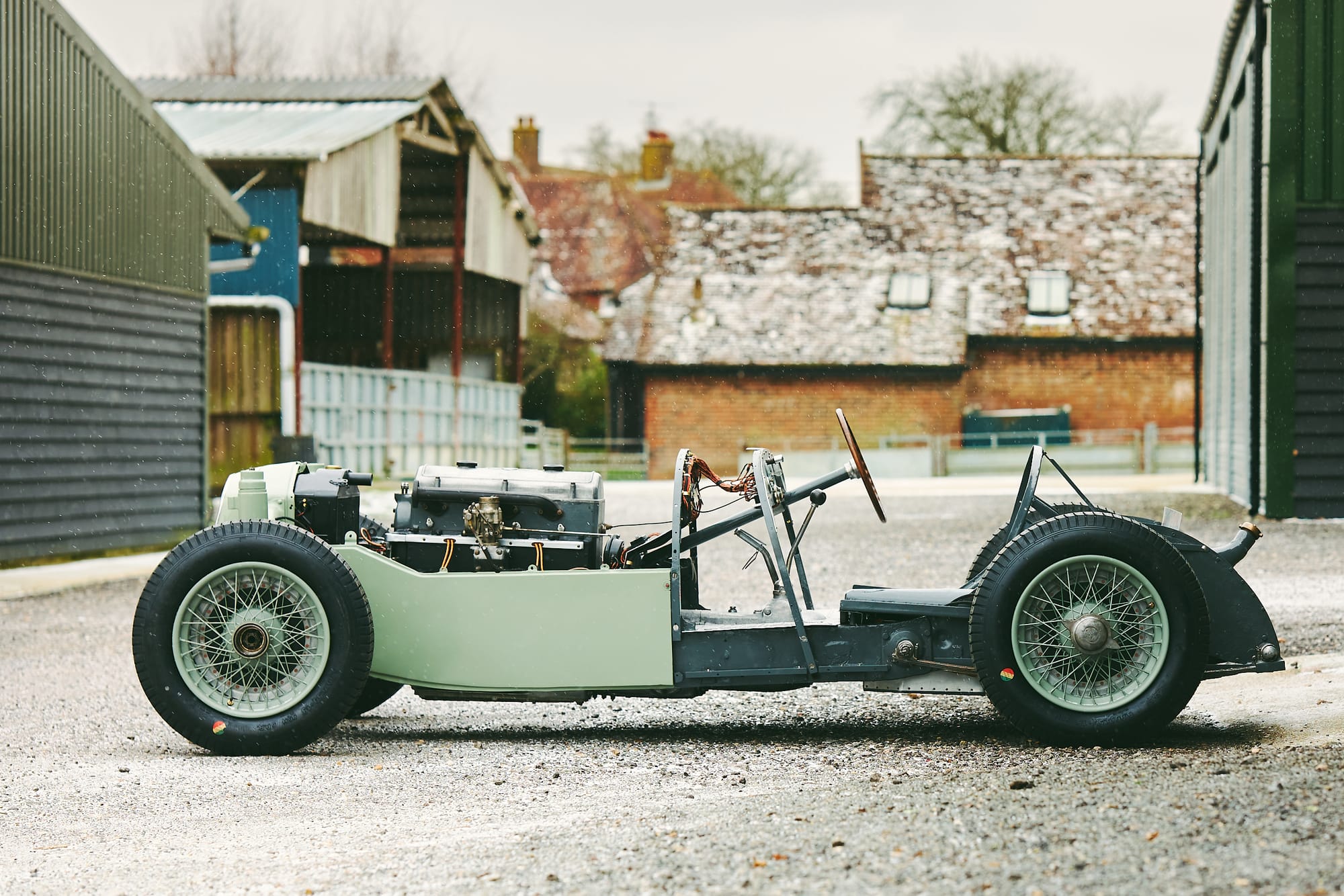
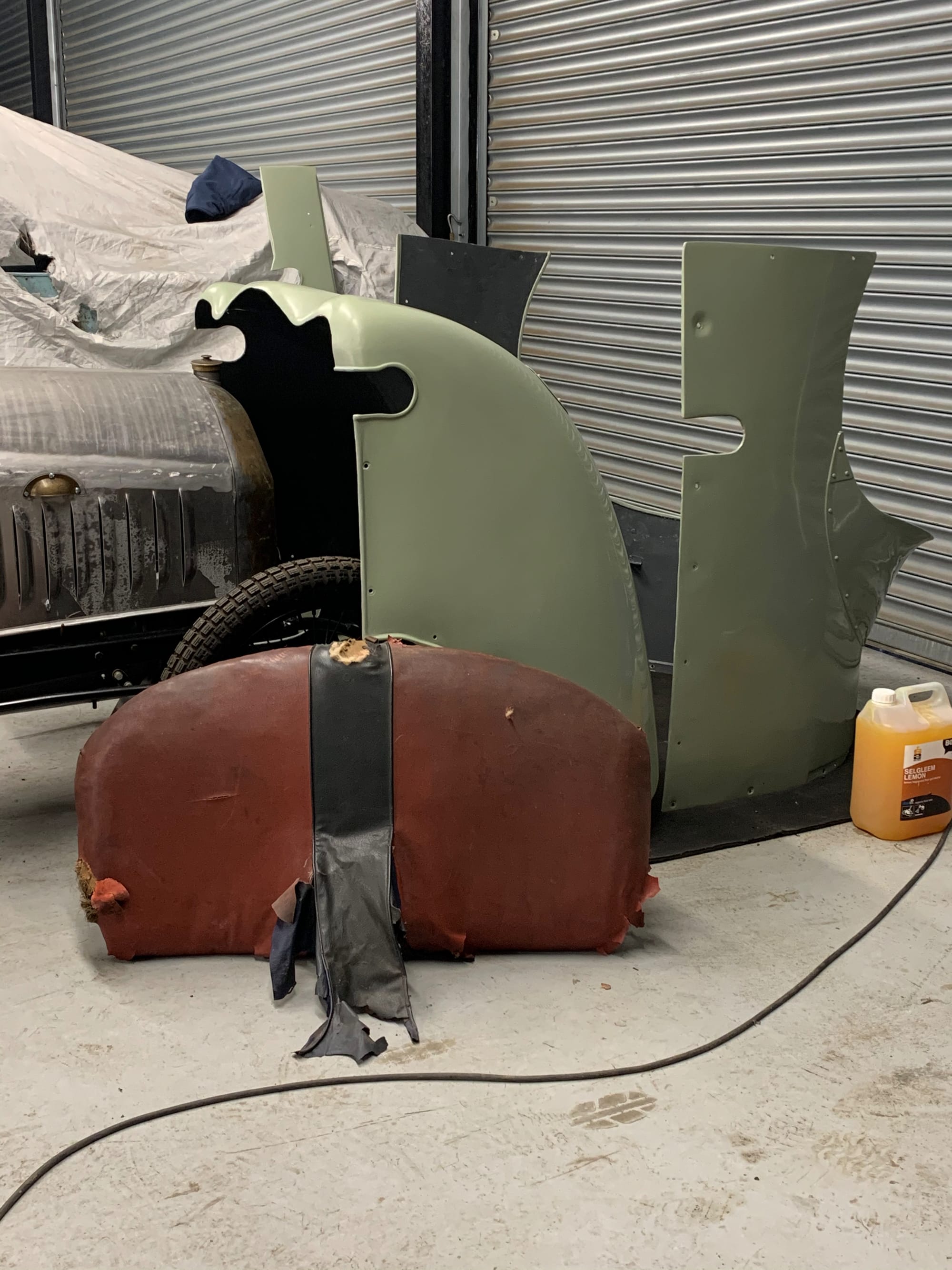
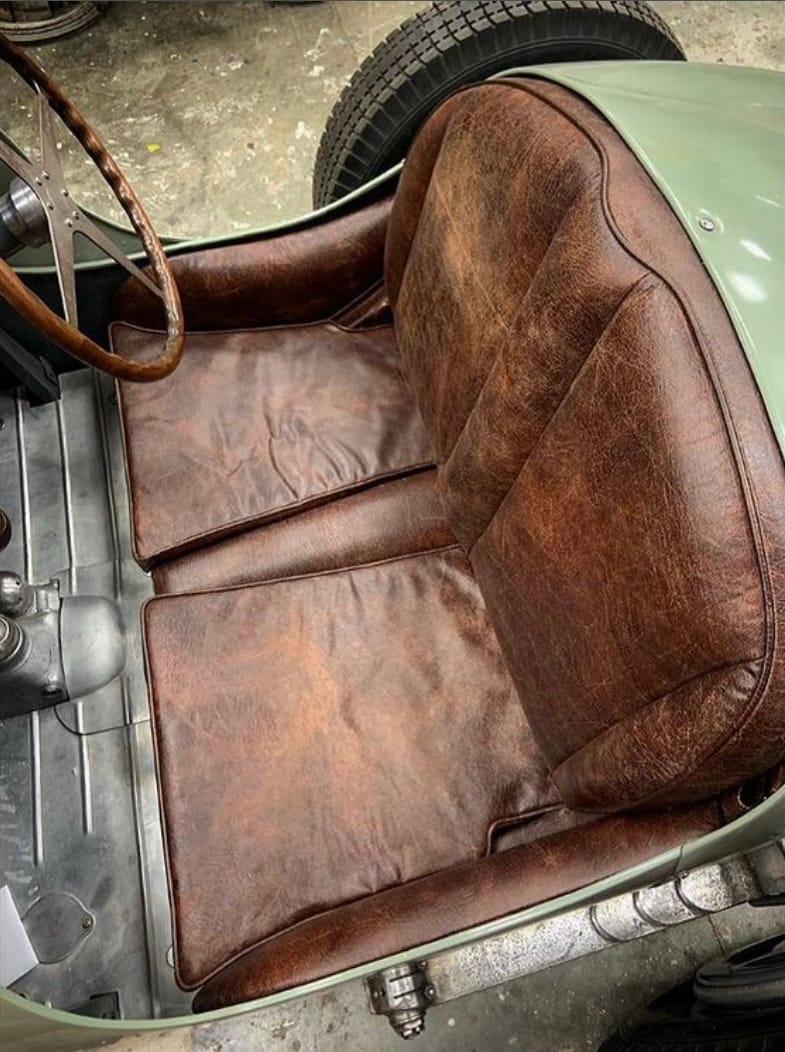
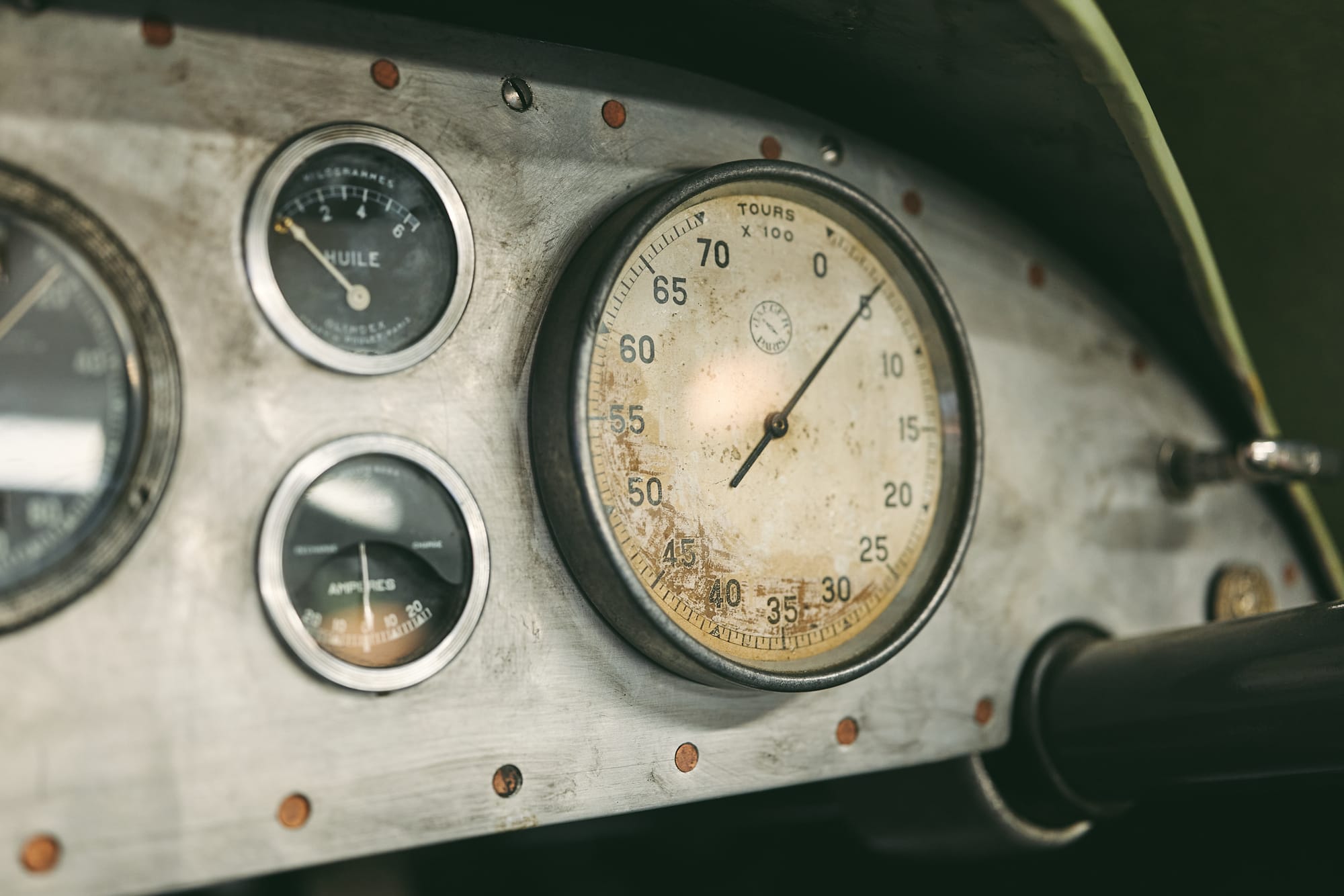
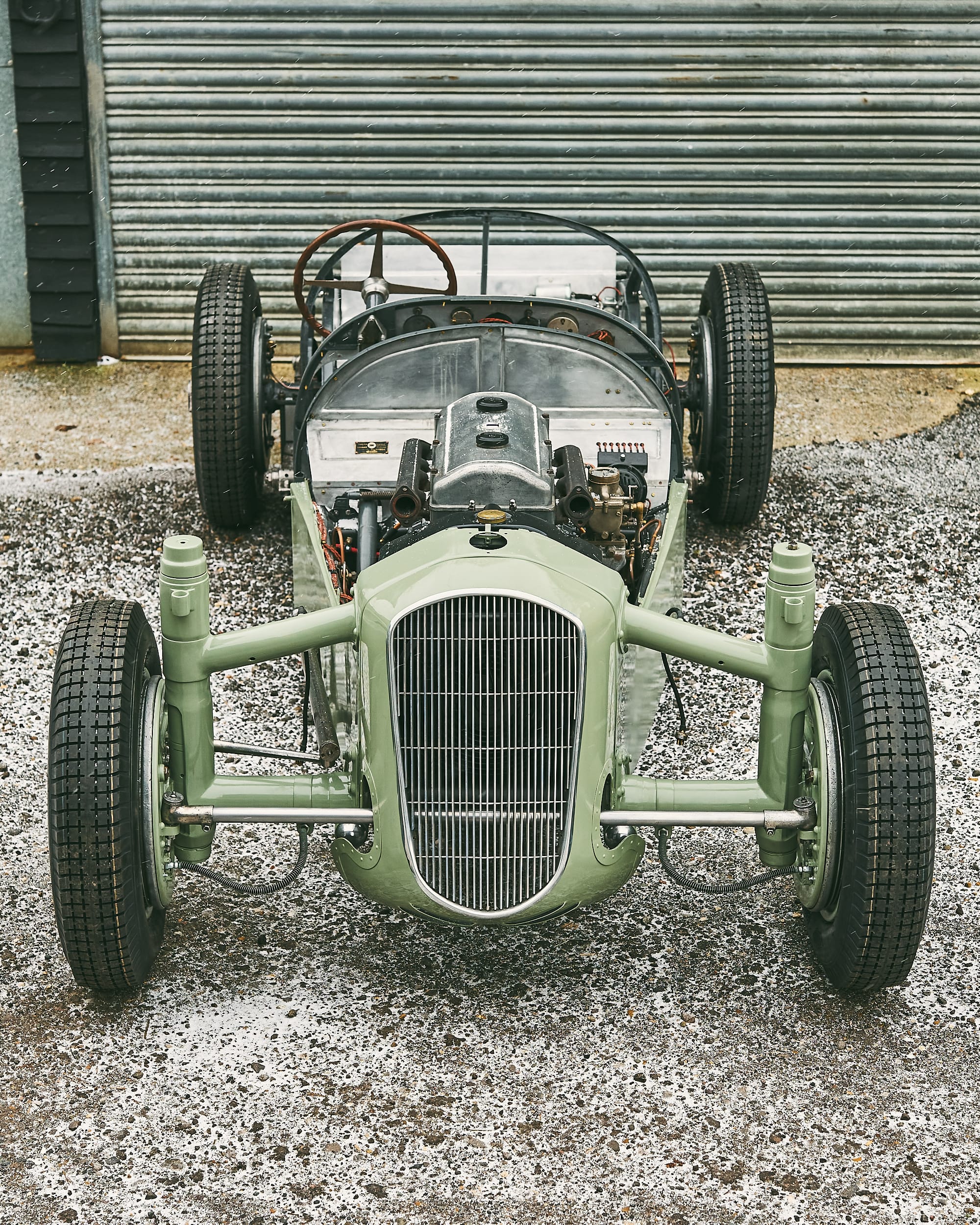
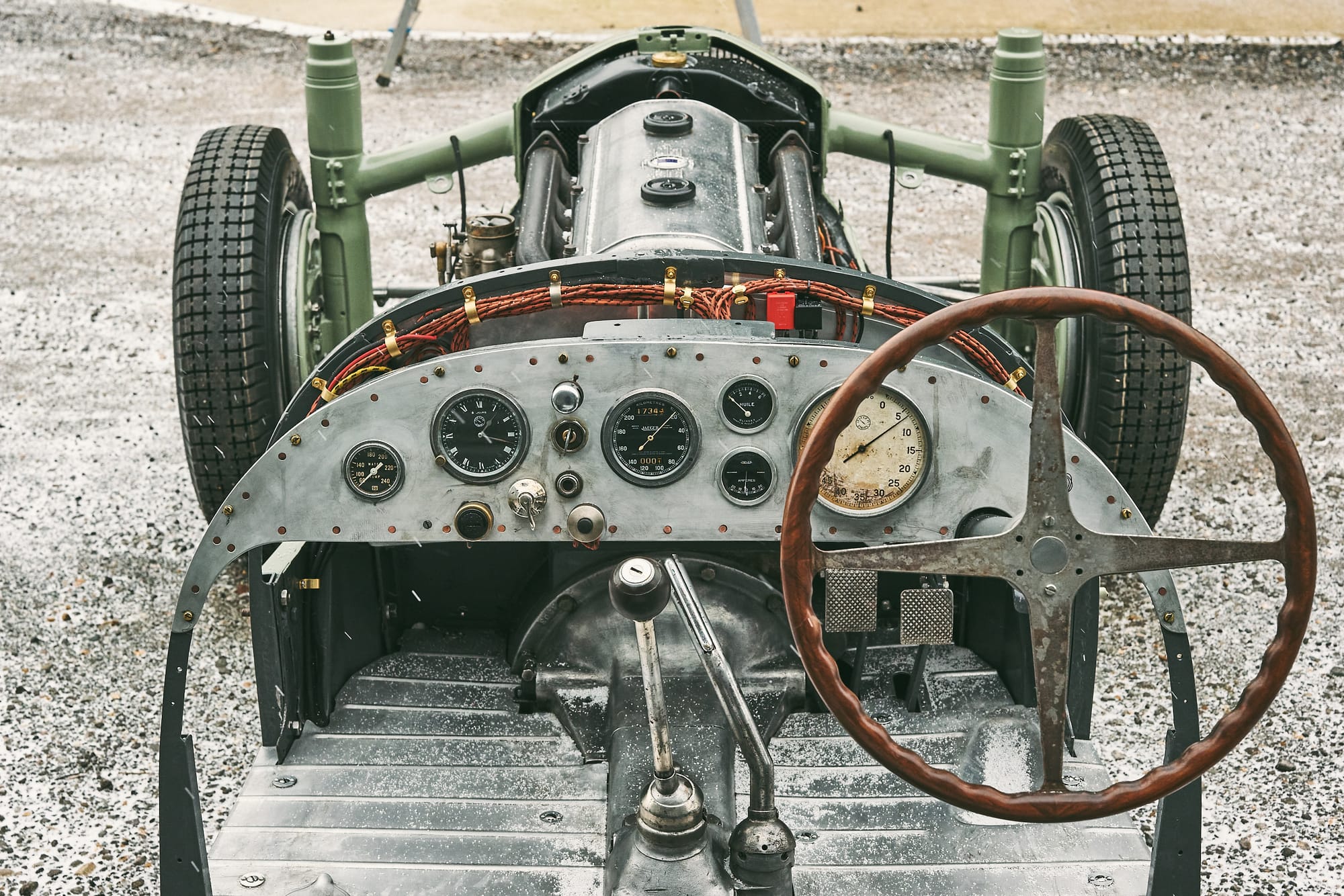
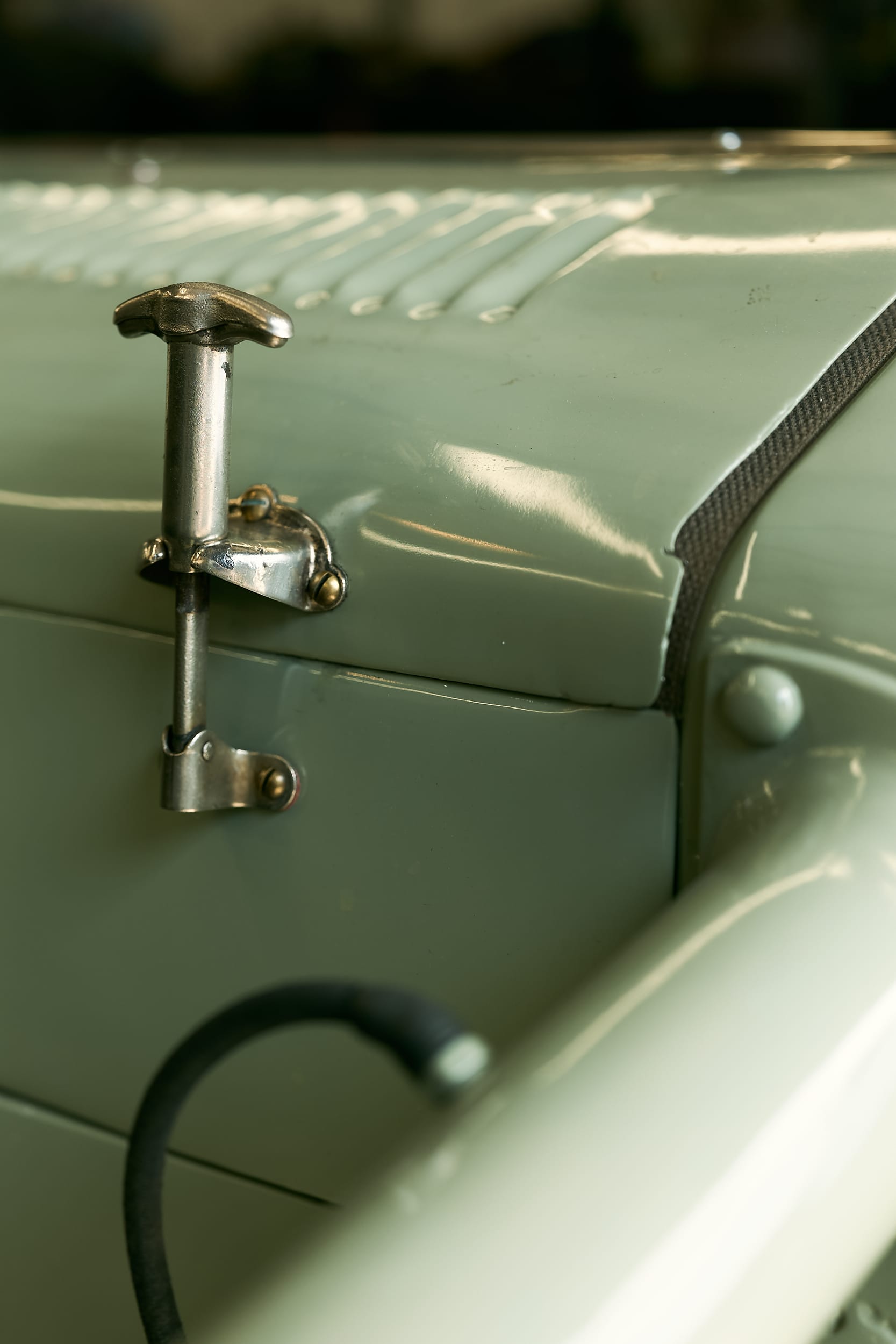
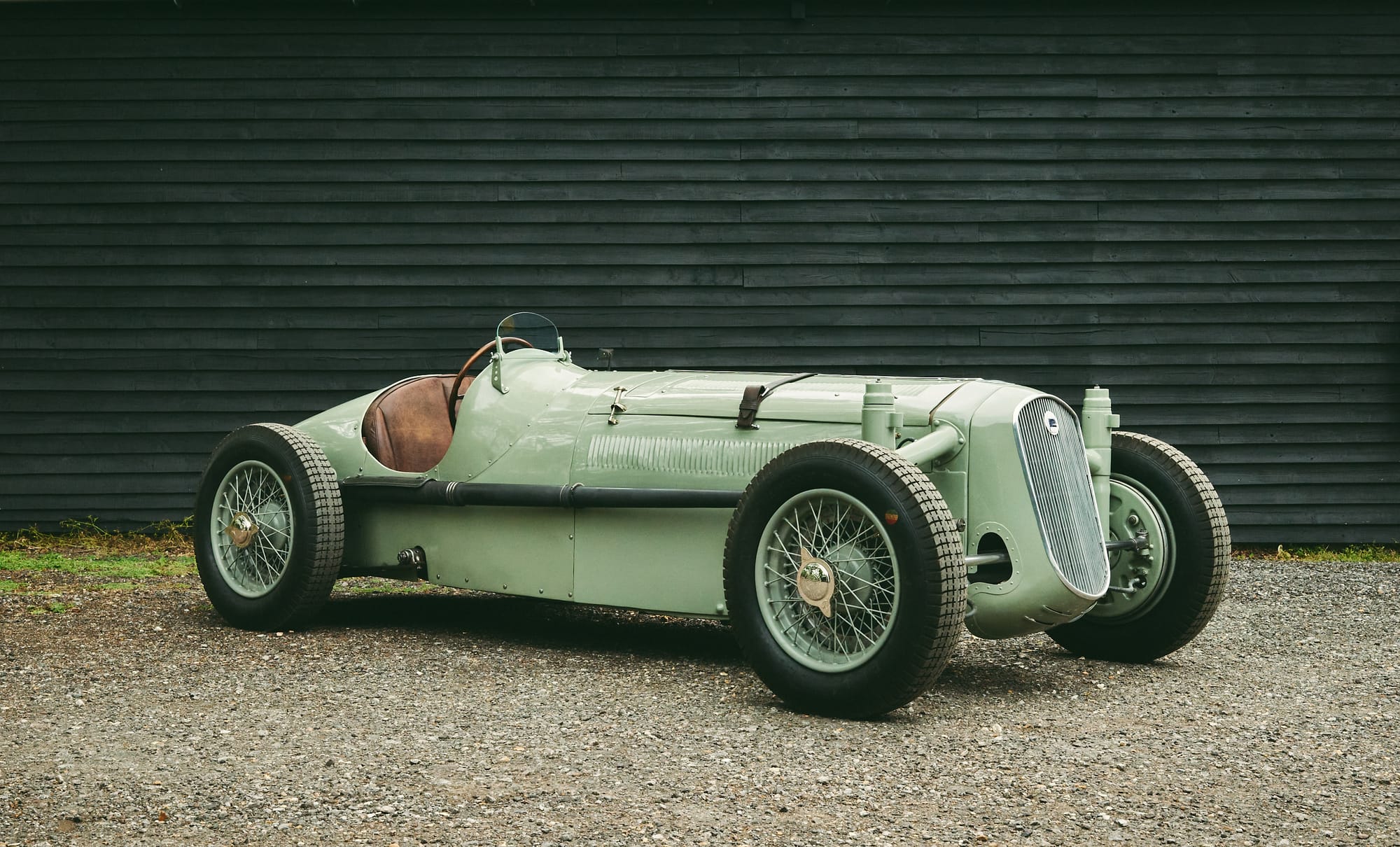
Credit: Archie Hill
The history behind these cars is obviously a big part of the process, but it must be quite challenging finding all the associated records. How does that side of things actually work?
Yes, history and digging into that depth of history is really important to us. Luckily, knowing a lot of people, and when you start chatting to people, other people end up turning up photos. So a friend of mine, Ivo Smutný from Auto Veteran Company in Prague, managed to find another amazing photo of the car racing. So it's very much an archaeological dig into looking through different books and finding little snippets of information, or stumbling over another photograph that perhaps someone has found of that period in time. We tend to do that with all the cars, and I am very keen on original finishes and preserving parts and those sort of things on the car, as I say, very much like a piece of artwork. It's much more about preservation as much as it is making it a practical thing, so it's the two things really. You want to make it safe and run beautifully and do what the car should do, but at the same time, maintain and preserve some of that history.
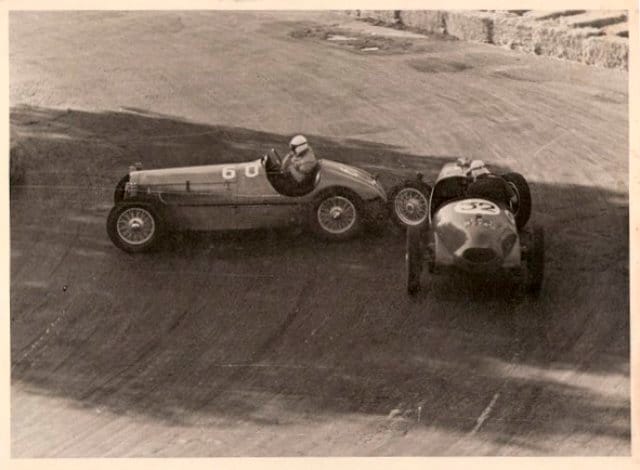
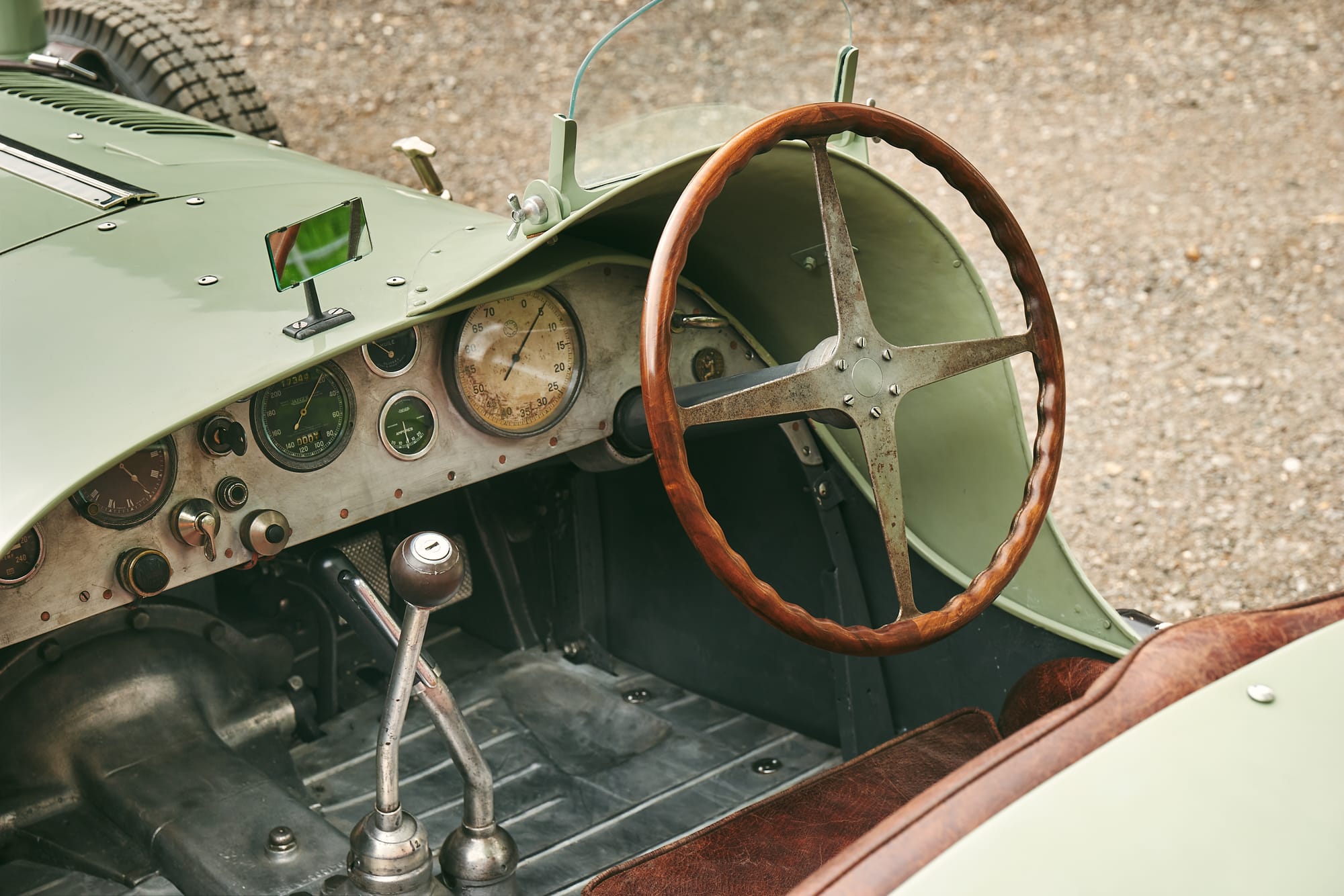
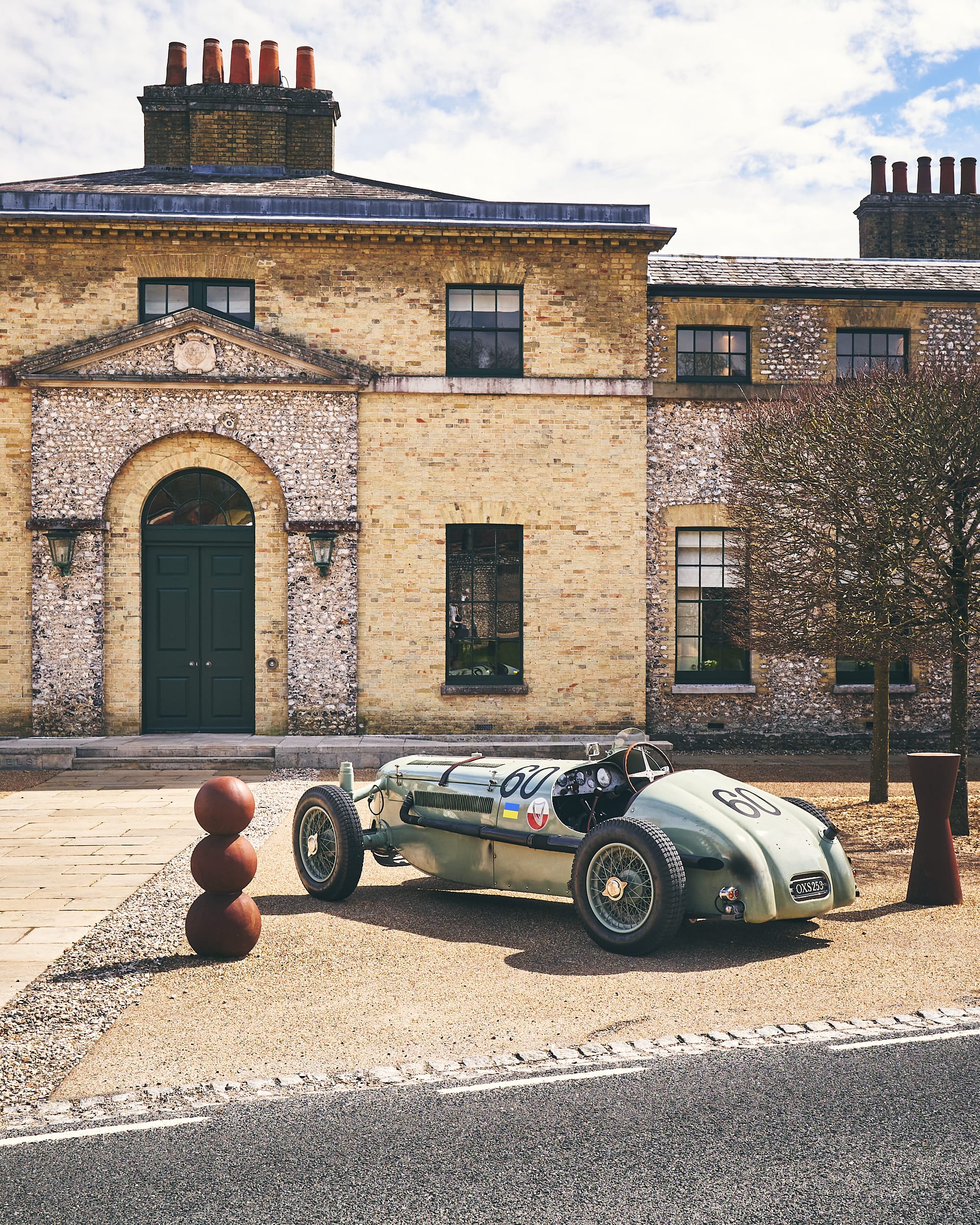
I have always wondered, have all the notable pre-war cars been accounted for now or are people still uncovering cars that had previously been lost?
Yes, there is still the odd car that turns up that you think wow, no one has ever heard of that, or has been in long ownership for 60 or 70 years, or perhaps has gone through family ownership and they have decided someone has died and it comes up. So stuff is always being discovered and I think it always will to some degree. Perhaps it will be more in terms of being rediscovered, but as we all know, we all have a tendency to perhaps collect and buy one or too many items occasionally, and they might get stuck at the back of the shed until you have time to get around to it, and sometimes you don't, and of course, that's when they are discovered again.
It reminds me of Ettore Bugatti burying his engines in a field to hide them from the Germans in the First World War, stuff like that is just so apt for that era and is just incredible, it ties into the story and everything.
Yes, absolutely. There are always a million different reasons why someone pushes something to the side and we will come back to it later, so yes, you are quite right.
And the cars that are in your workshop, the cars you are working on, they are getting raced as well, what are you hoping to race this year?
Yes, we are lucky to help maintain a few different cars, quite varied. We don't do a huge amount of racing support, but we do a fair bit of preparation. Often owners have different ideas of whether they want the car to win or whether they just want the car to be shown and enjoyed and safely raced, so there's slightly different preparations based on that. This year we have a couple of cars in the Members’ Meeting at Goodwood to look forward to. We have a Type 35B, my Edwardian star, then we are often racing and preparing a 250F Maserati, which the owner doesn't tend to race a huge amount himself, but we are lucky enough to know some very good drivers that have helped race it for us in the past, such as dear old the late Simon Diffey and more recently, Patrick Blakeney-Edwards has helped us out with the drive as well. It's really great to be able to share these cars with other people and excited, enthusiast drivers that want to get the chance to drive such magnificent cars. We are always very keen to try and help younger drivers that perhaps have always wanted to drive a car, and if the owner is happy to do so, then we will try and facilitate that.
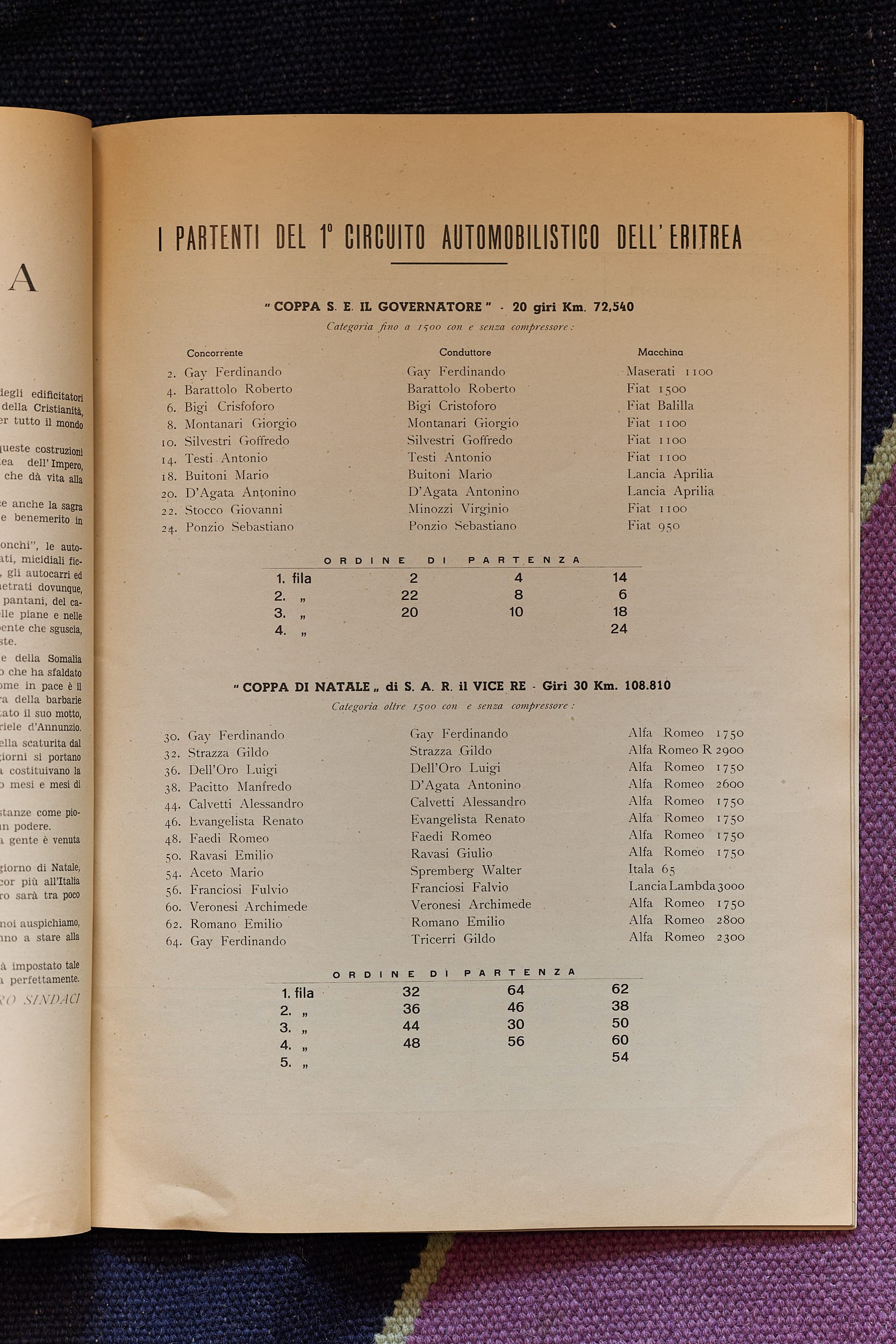
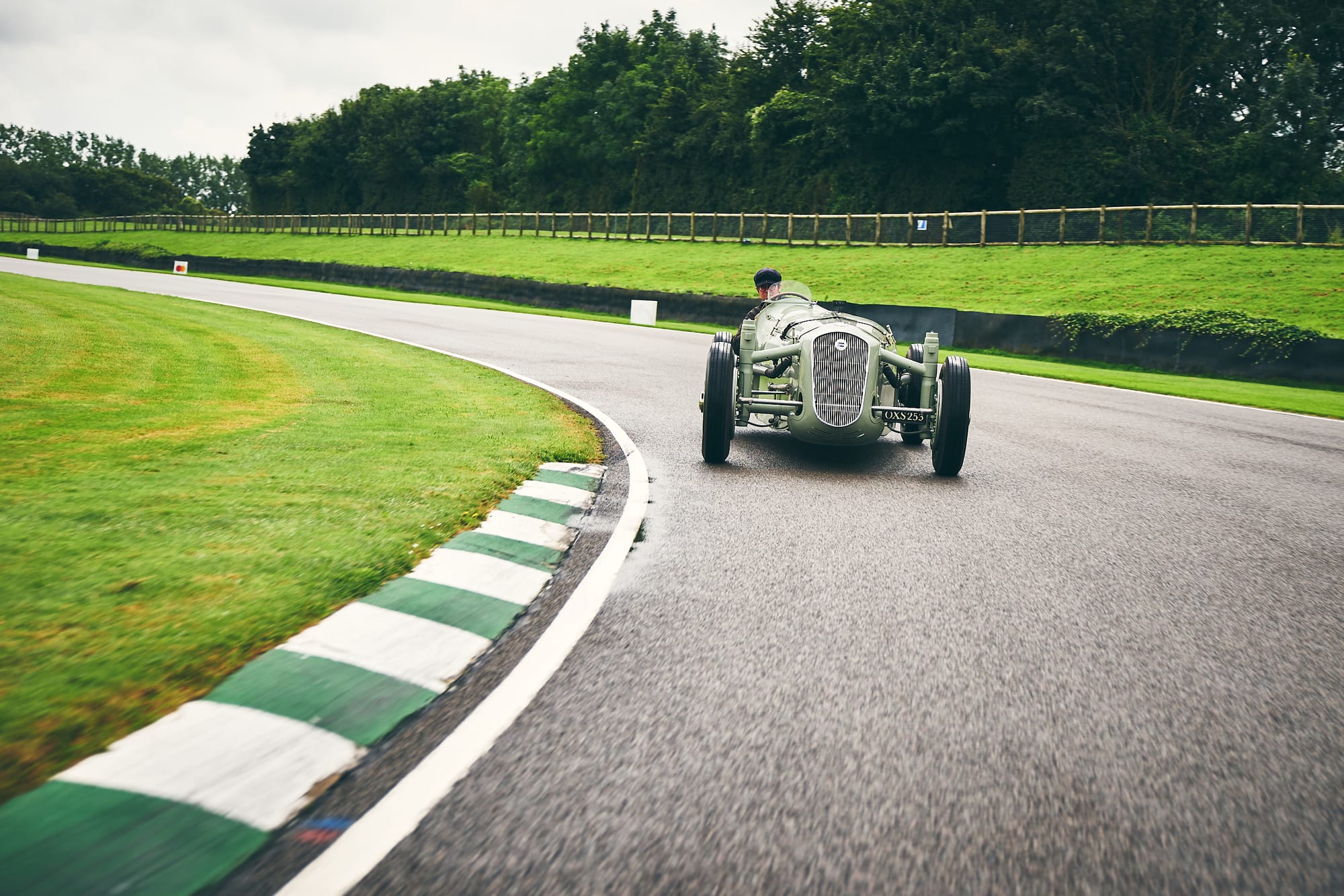
Is that Amilcar going to be raced this year, that Le Mans Amilcar?
Yes, so we restored a lovely little CO Amilcar, which was originally a works car, and then built up into a team car for the Martin family, who were the Amilcar concessionaire in Paris, and they entered it into Le Mans 1933 and 1934. So we are hoping we are going to return it back to France this year, the first time in many years, and we are going to take it to Montlhéry Revival. So that will be rather wonderful to have it zooming around the banked circuit of Montlhéry, which is just outside Versailles, near Paris. That's in May, so if you haven't been, you need to go, it's a very good event.
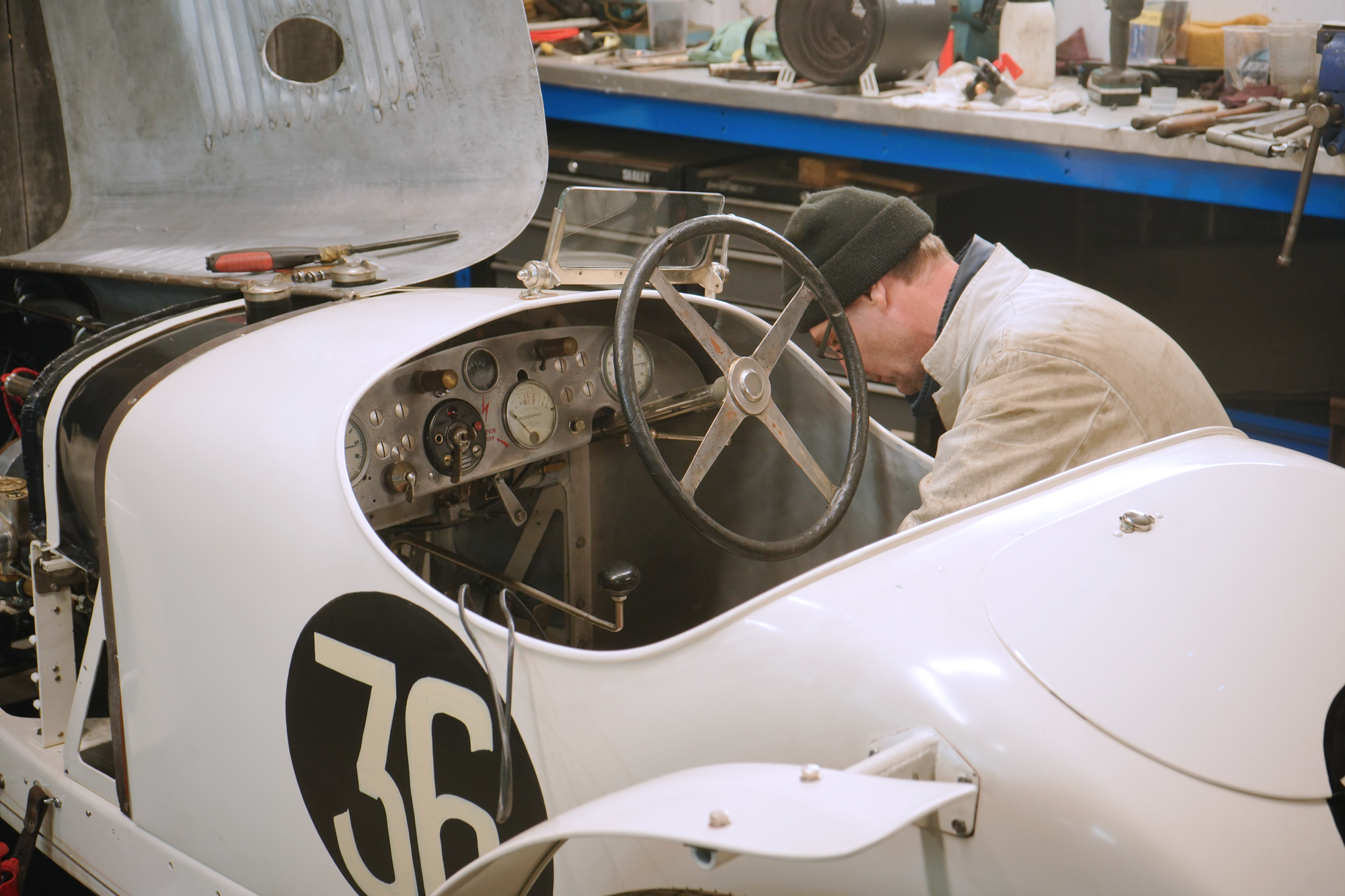
Yes, I remember you telling me about that event when I came down, is it the 100th anniversary of that event this year?
Yes, of the circuit itself, so it's a very important anniversary. We have a few of those this year, the same with the Grand Prix Bugattis and things, so there's a few things going on this year, which is very exciting for those who love particularly French pre-war racing cars.
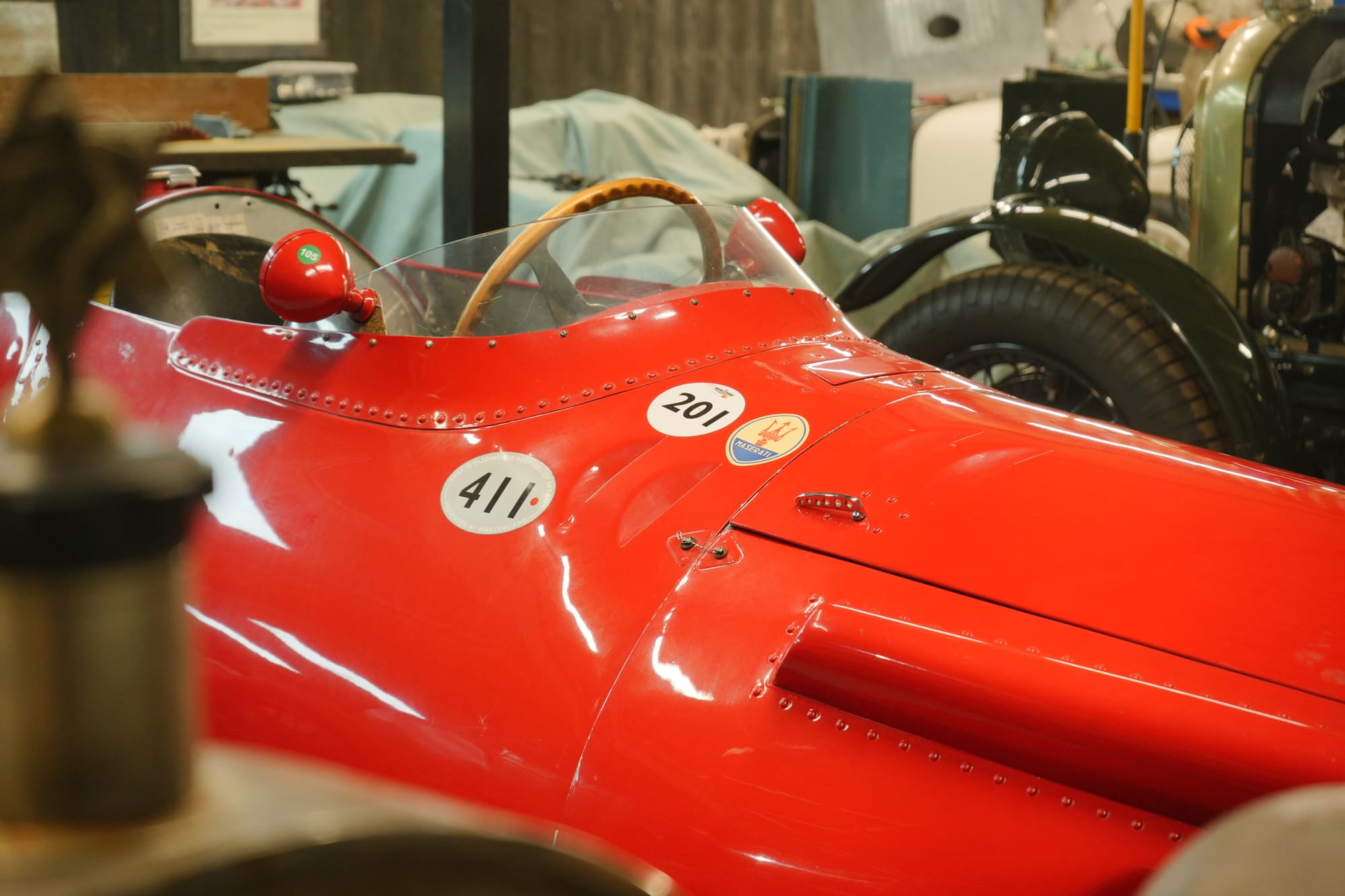
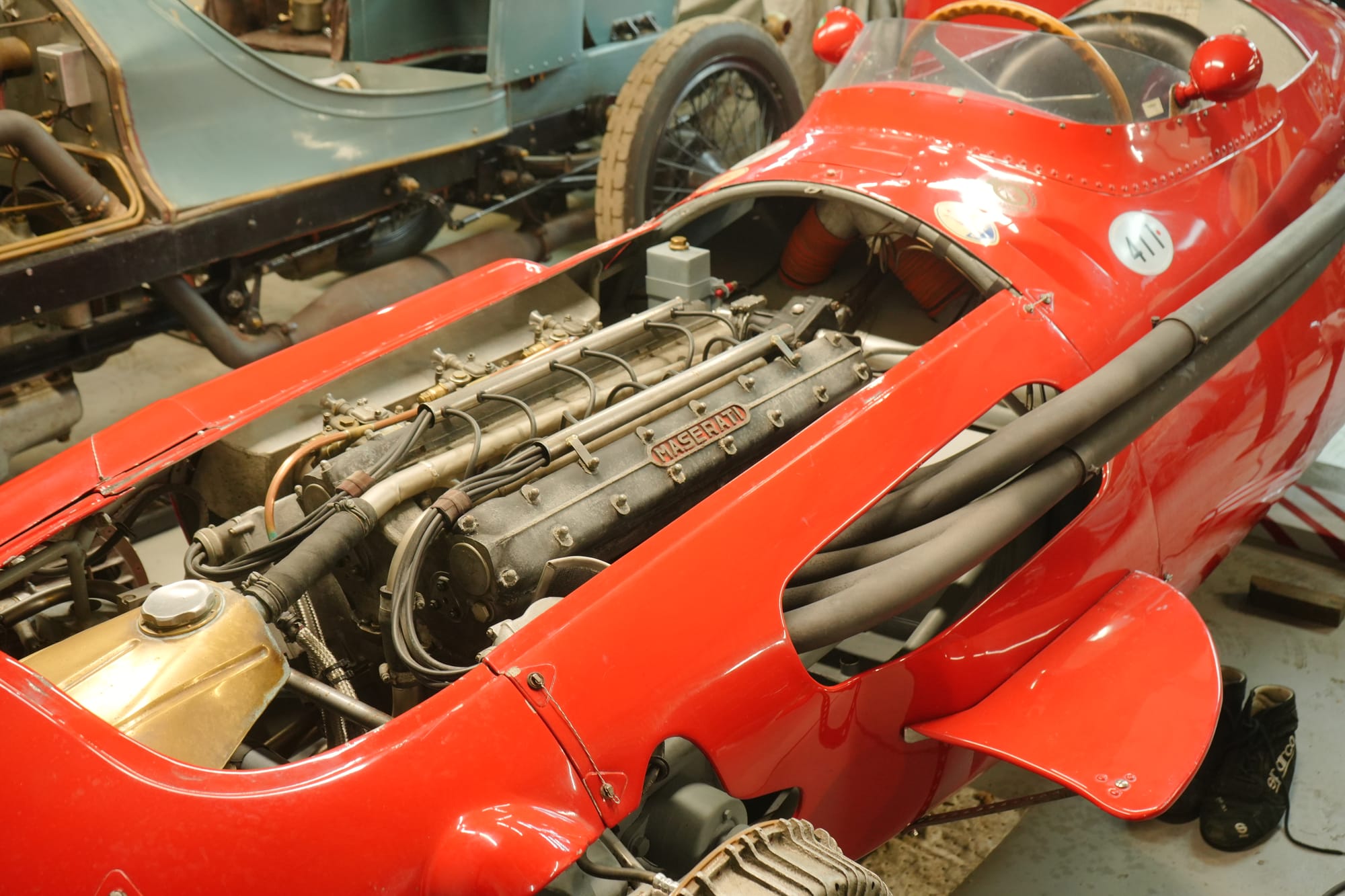
Does that mean that the community around pre-war cars is in pretty good shape at the moment, how does it compare to 20 years ago for example?
I think so. Like all these things, it's constantly evolving, and as we lose some people, we are lucky enough to gain some new people. I think certainly the internet and Instagram and things are introducing vintage cars to a totally new audience really, and it's great to see so many people getting into vintage cars, perhaps through like me, through the cheaper end of the market originally, through Austin 7s and things like that, which is such a great gateway into driving some very exciting cars. You have so much fun in a vintage car, it's a very visceral, exciting experience to drive and be involved with one. A classic car is a lovely thing, but a vintage car does have a certain excitement to the whole affair.
I think it's the story as well behind those cars that really resonates with people and appeals as well.
Yes, that's right, and they are so usable as a car as well. You can have so much fun in a vintage car, from trials to driving tests to racing, and of course, road rallies and touring. They look better the more they are used, so one doesn't have the same worries that one might about your shiny Ferrari or something with a vintage Frazer Nash, for example, or something like that.
You mentioned there getting young people involved as well, and I noticed when I was at your workshop that you had a young guy working for you, his name escapes me, was it Will?
Yes, Will.
I think he was the last apprentice to be taught by Rod Jolley, the renowned coach builder.
That's right.
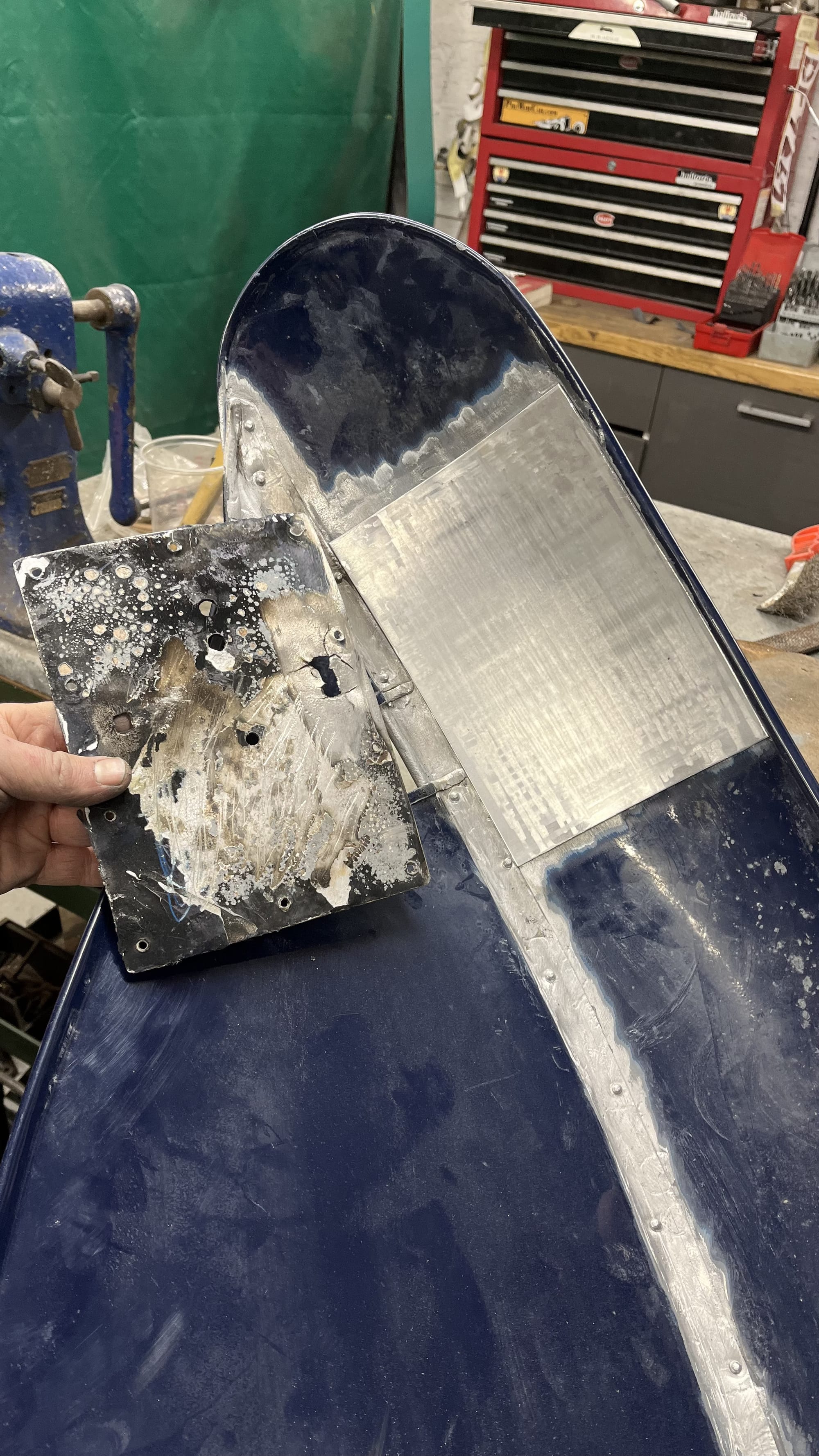
Are there many places where you can still learn these traditional practices, and is this a bit of a concern for the future of the pre-war community, that these skills are going to be lost?
I think it had been a concern, but luckily we have things now up at Bicester Heritage, they've got their Heritage Academy, which is very much designed to help younger people get into the industry and the classic car vintage world, and they are running some really fantastic courses I believe, covering everything from wiring to panel beating to suspension setups, but very much with an idea towards vintage and classic motoring, which I think is a wonderful thing and can only help businesses going forward and the maintenance of these cars.
I think there will always be people that are interested in that line of work. I do believe that the knowledge can and will be passed on. I think that guy Will is a perfect example of that. Guys like him are the next generation.
Yes, absolutely, and there's actually quite a lot of them, so it's very encouraging. There's no substitute for years and years of working. Will has done about 15 years in now, so at 30 years of age he is very experienced.
I think that's it, you just need that environment to foster and develop that curiosity. I think a lot of occupations today require things to be done quickly, efficiently, cost effectively, but you can't really approach art in that way.
No, I think it is very much about time serving really, because the longer you are doing something like this, the more that you, every day is always a school day and there are things that you learn, and we have all sorts of different sayings in the workshops bound around that thing. The thing should look mint, it should look correct with its period thing. No one in our workshops ever say, will that do? It's also learning about how to get yourself out of the mess if it hasn't quite gone right, and only experience helps you do that.
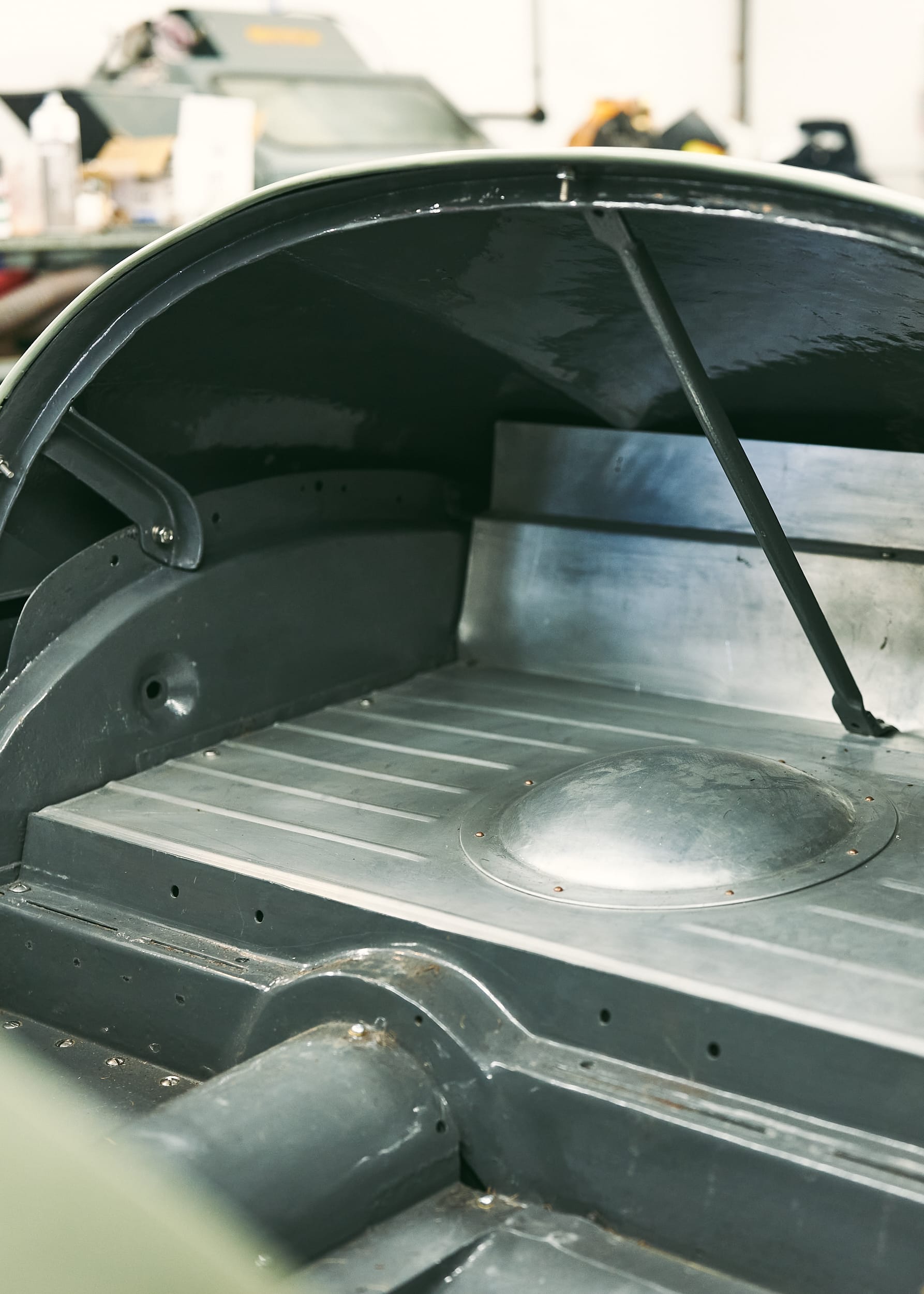
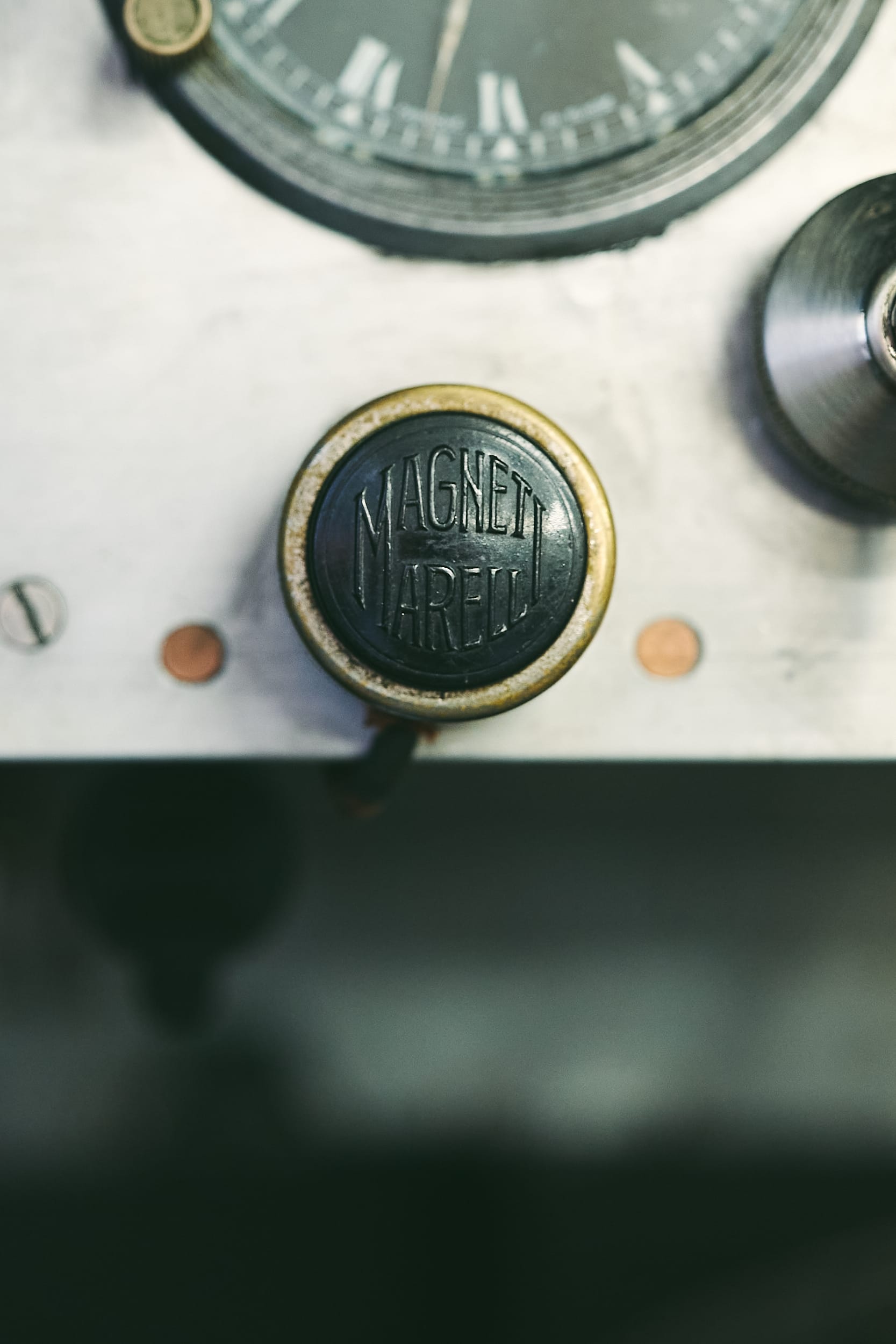
One of the other things I wanted to get your thoughts on was Goodwood's decision to mandate sustainable fuels at the Revival this year, is that a good thing for pre-war racing?
Yes, I think it can only be a good thing. I think it's fantastic if we can run the cars, and we can, so successfully on biofuels, it can only be a positive thing for our industry and for the cars themselves, and for the environment, of course. So hopefully it shows that the cars are very sustainable. The whole idea of running an old car actually is probably more now to be applauded than anything else. If we can look after the things that we make, then we don't need to make lots of new things, which obviously is often harmful to the environment. I think the fuels thing is a great way of us being able to continue, I hope, using our cars and enjoying them.
Do you have to modify the cars in any way to accommodate for that?
From what I know of these fuels so far, I know that the octane ratings are acceptable and will run very well on a car without any modification to carburation or anything like that. I think it's a pretty straightforward swap over.
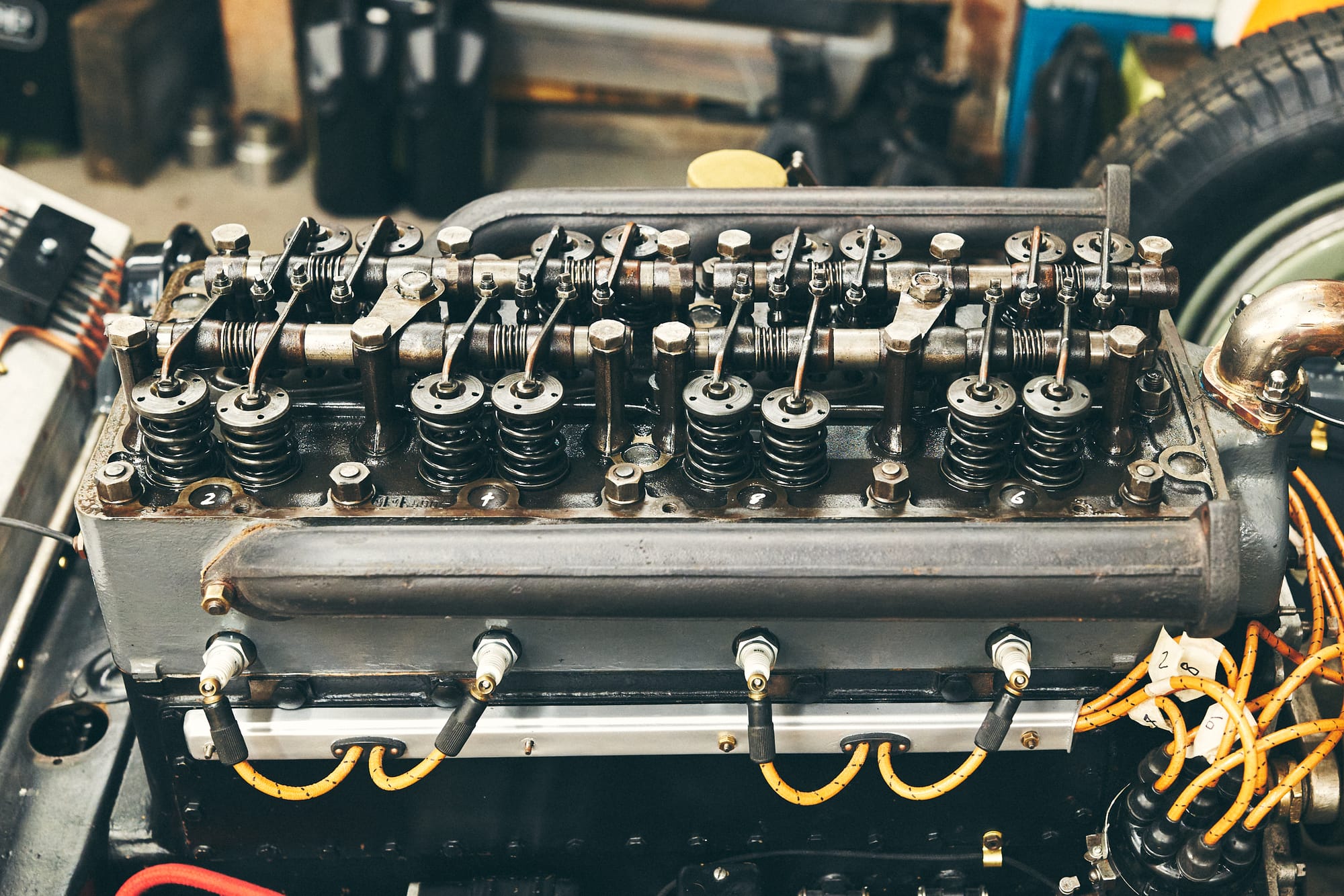
That's good to hear. To end on I was actually going to ask you some quick fire questions, if I may?
Sure.
What is your favourite pre-war marque?
That's difficult, isn't it? I'm definitely into French pre-war cars. I've always had an affinity with Delage, always known as France's finest car. I certainly think some of their Grand Prix cars were probably some of the finest engineering and technical marvels. That said, it's a real close toss up of course with Bugatti, who I think, Ettore Bugatti, a family of artists. If I could pick two, that would be better, but I suppose I ought to go with Bugatti really I think.
Do you have a favourite circuit?
Well we are terribly close to Goodwood so we always enjoy going down to Goodwood. I think it's a fast circuit and it's a beautiful location and it's only 10 minutes from my house, so I'm going to go with Goodwood.
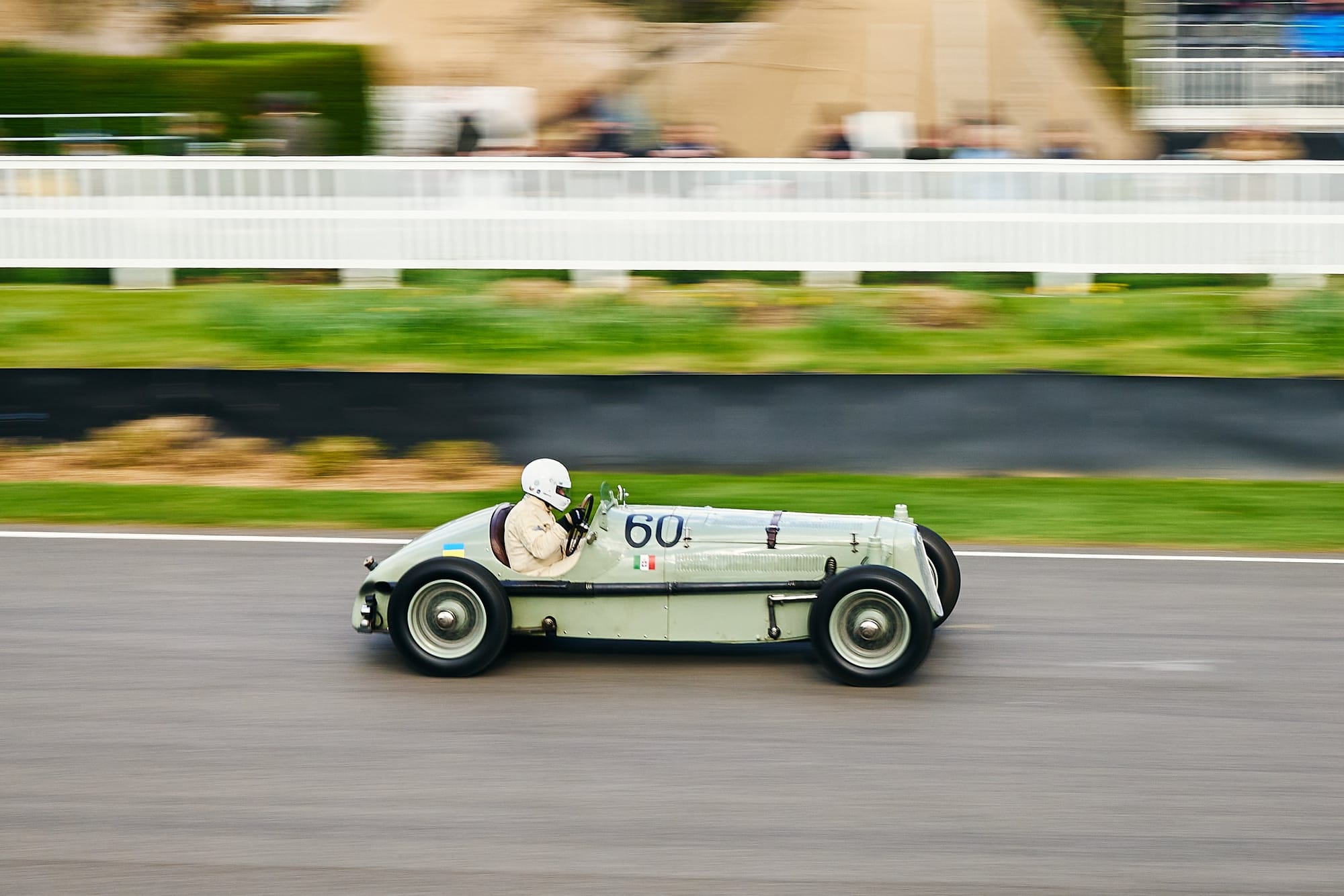
I am very close too, so I think it's one of my top three for sure. What's in your dream three car garage?
Oh, dream three car garage, that's a good one. Well I love Bugatti Brescias, and I am lucky enough to be restoring one for myself at the moment, so that's going in the garage. I think one has to have an Austin 7, difficult to choose between an Ulster and a Chummy, but I think it would have to be a Chummy because you can fit more friends in it. I think I ought to be choosing probably a large saloon or something, so maybe a Voisin saloon would be rather nice. I think that should cover most bases, if given only three, I would rather have more.
I am sure. I think I might need to take another trip down so you can show me what those cars are.
[laughs] Yes, I think you ought to. I think we ought to get you out in an Austin 7.
I think that's the way to go.
Or a Bugatti.
Or a Bugatti, I was taken to those I must say. That's fantastic. Walter, thank you so much for your time and just very grateful to have you on.
No, my pleasure, thanks Archie, cheers.

